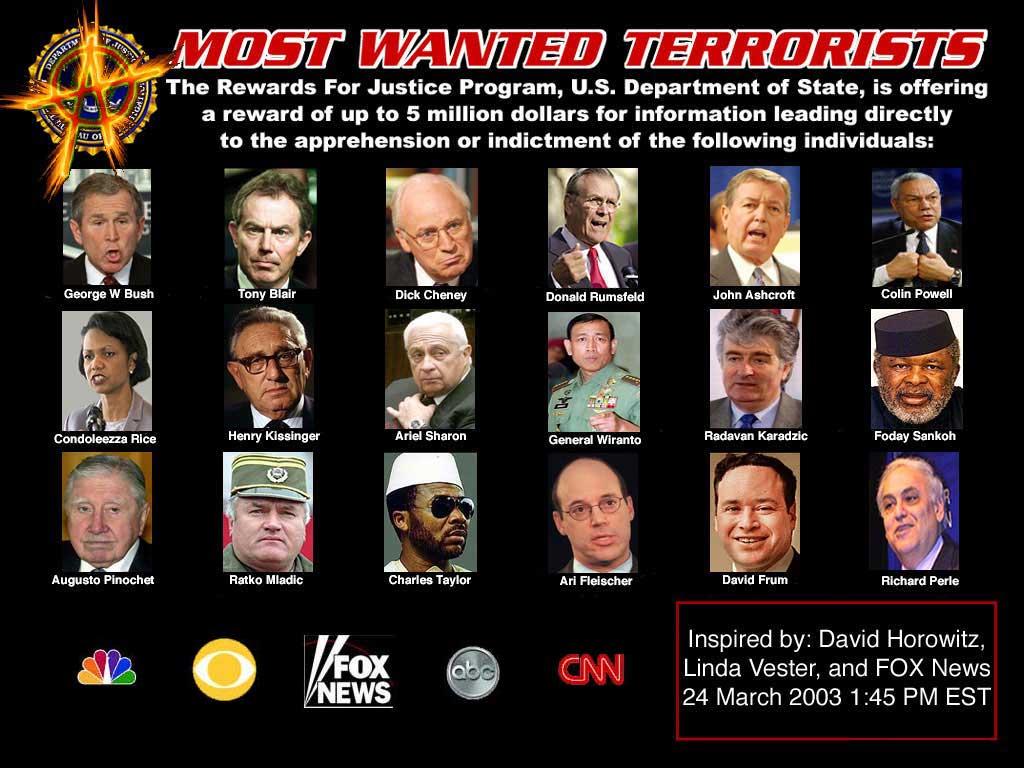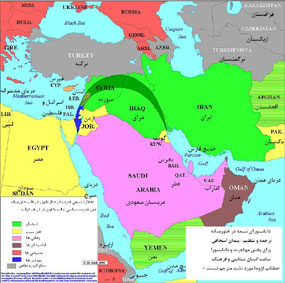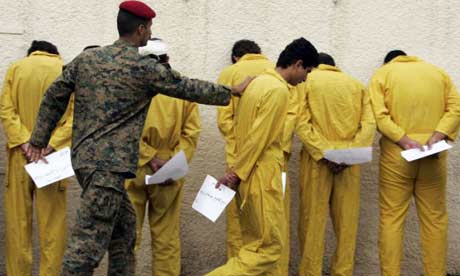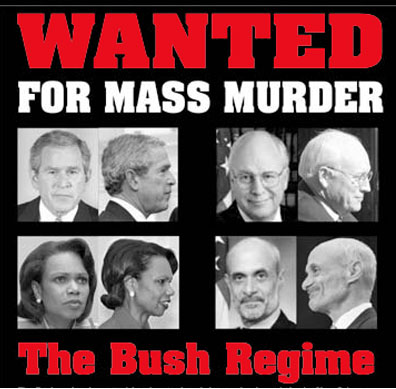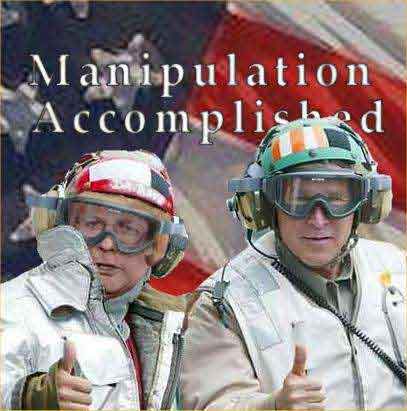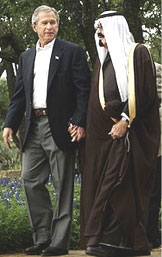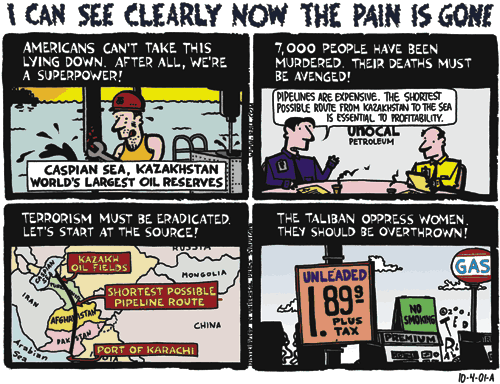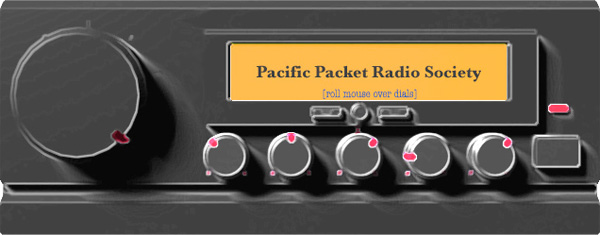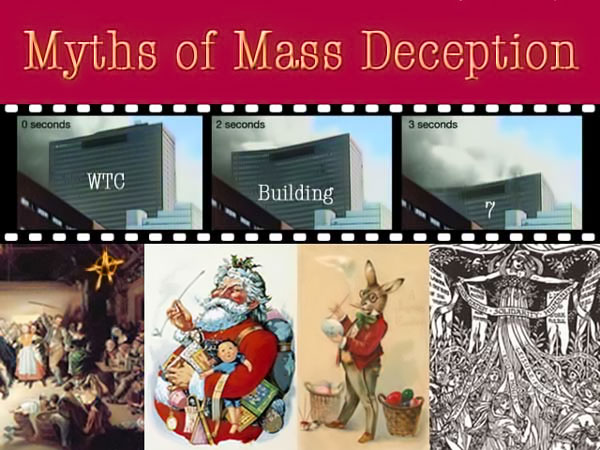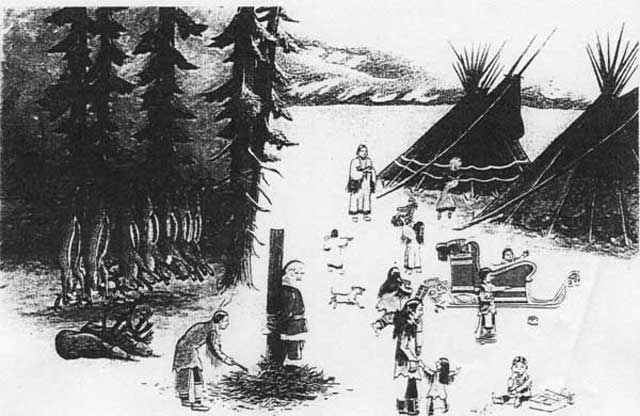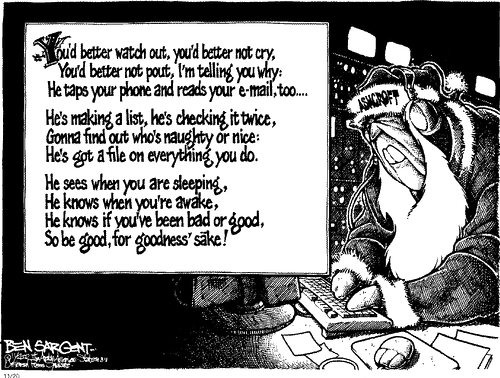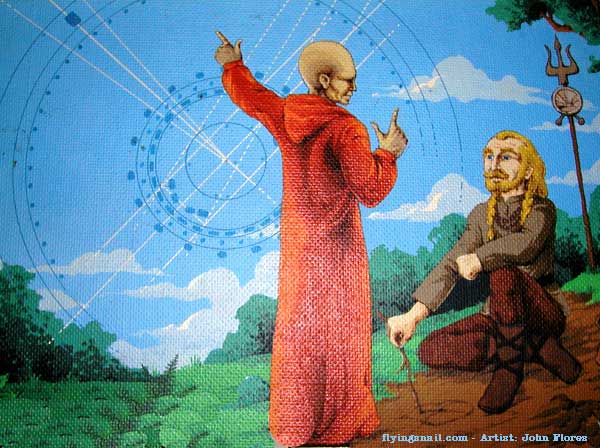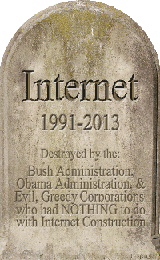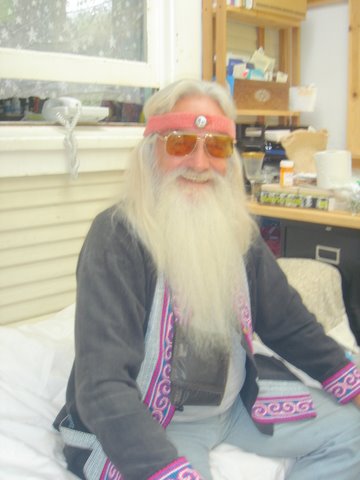Why Not Try Love Again by Jumpin' Jupiter
BOPTIME ~ Saturdays, 6 AM/EST, Listen
Hearing in the Bardo ~ Journey through void between death & rebirth.
http://vimeo.com/87617491
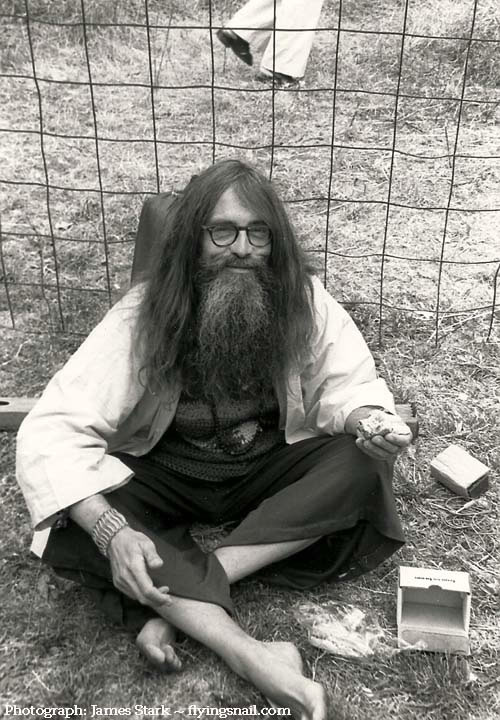
Keith Lampe, Ro-Non-So-Te, Ponderosa Pine ~ Volunteer ~ Photo: James Stark
July 25, 1931 ~ November 11, 2014
CEREMONY OF SUKHAVATI
Sukhavati. (bde ba can). ‘Blissful Realm.’ The pure realm of Buddha Amitabha.
49th Day of Bardo
December 30, 2014Bardo. (Tib.) An interval or gap; In particular the intermediate state between the end of one life and rebirth into another. Bardo can also be divided into six different levels; the bardo of birth, dreams, meditation, the moment before death, the bardo of dharmata and the bardo of becoming.
HRI
HRI. All the qualities and blessings of the three secrets (body, speech, and mind) of all the Buddhas.
In the profundity and brilliance of dharmakaya the compassion of Avalokitishvara arises.
Dharmakaya. (Tib. chö ku) One of the three bodies of buddhahood. It is enlightenment itself, that is, wisdom beyond any point of reference.
Avalokiteshvara. (Tib. Chenrezig) The bodhisattva embodying the compassion of all the Buddhas. Depicted holding the wish-fulfilling gem between folded hands. One of the eight main bodhisattvas. The mantra associated with this bodhisattiva is known as the king of mantras, OM MANI PEME HUNG.
Bodhisattva. (Tib. chang chup sem pa) “Heroic mind” Bodhi means blossomed or enlightened, and sattva means heroic mind. Literally, one who exhibits the mind of enlightenment. Also an individual who has committed him or herself to the Mahayana path of compassion and the practice of the six paramitas to achieve buddhahood to free all beings from samsara. These are the heart or mind disciples of the Buddha. A bodhisattva can be physically present in our world or abide in domains of more subtle manifestation.
In the magnificent and victorious vision we proclaim the jñana of Amitabha.
Jñana. Original wisdom or pristine awareness. This is the original awareness that speaks to our ultimate or true nature.
Amitabha. A Tibetan deity. This is the red dhyani buddha associated with the fire mandala. Amitabha is also associated with two important deities Chenrezig and White Tara.
You are in the state of simplicity and you are free from fetters.
Fetters. Something that confines.
You have actually attained the fundamental enlightenment.
Please look upon us.
Forgive us our confusion.
Forgive us that we have been misled by the samsaric world.
Samsara. (Tib. kor wa) “Cyclic existence.” The conditioned existence of ordinary life in which suffering occurs because one still possesses attachment, aggression and ignorance. It is contrasted to nirvana. Through the force of karma motivated by ignorance, desire and anger one is forced to take on the impure aggregates and circle the wheel of existence until liberation.
I make offerings to you.
I rejoice in your virtues.
I request you to remain in our world and continue to turn the wheel of dharma.
Wheel of dharma. (Skt. dharmachakra) The Buddha's teachings correspond to three levels which very briefly are: the first turning was the teachings on the Four Noble Truths and the teaching of the egolessness of person; the second turning was the teachings on emptiness and the emptiness of phenomena; the third turning was the teachings on luminosity and buddha-nature.
NAMO AMITABHAYA
SAMAYA TISTUAMNamo. (phyag ‘tshal lo). Expression of homage and respect; salutation.
Amitabha. A Tibetan deity. This is the red dhyani buddha associated with the fire mandala. Amitabha is also associated with two important deities Chenrezig and White Tara.
Samaya. (Tib. dam sig) The vows or commitments made in the Vajrayana to a teacher or to a practice. Many details exist but essentially it consists of outwardly, maintaining a harmonious relationship with the vajra master and ones dharma friends and inwardly, not straying from the continuity of the practice.
Please accept drinking water, flowers, incense, light, perfume, food, and music.
I praise your magnificent wisdom and power.
You can liberate all sentient beings with one glance of your prajña and upaya.
Sentient being(s) (Skt. bhuta): All beings that have mind and are born into the six realms of existence or samsara.
Prajna. (Tib. she rab) In Sanskrit it means “perfect knowledge” and can mean wisdom, understanding or discrimination. Usually it means the wisdom of seeing things from a high (e.g. non-dualistic) point of view.
Upaya (Skt.): Also called skillful means. The vajrayana notion of compassion, denoting the spontaneous activity arising from a realized being for the benefit of others.
I request you to liberate the sentient beings who have passed and departed from their physical lives.
May they be released from their samsaric fetters and attain liberation at once.
Liberation (Skt. mukti / Tib. tharpa): Freedom from samsara's sufferings either on the level of an arhat or buddha.
If not so, may they attain a good human birth which is free and Well favored.
If that is not possible, may they be freed from the lower realms.
Lower realms: Refers to the three lower realms of existence – the hells, hungry ghosts and animal realms.
I aspire to and worship your vision and our vow, so that this particular sentient being, (name), and all other sentient beings may be liberated from the fetters and kleshas, so that they may begin to overcome their mental obstacles and begin to understand the notion of egolessness.
Klesha. (Tib. nyön mong) The emotional obscurations (in contrast to intellectual obscurations) which are also translated as “disturbing emotions” or “poisons.” The three main kleshas are (passion or attachment), (aggression or anger); and (ignorance or delusion). The five kleshas are the three above plus pride and envy or jealousy.
May they be free from the ayatanas.
Ayatanas. These are the six sensory objects of sight, sound, smell, taste, and body sensation; the six sense faculties, the visual sensory faculty, the auditory sensory faculty, etc., and the six sensory consciousnesses, the visual consciousness, the auditory consciousness, etc. They make up the eighteen constituents for perception.
May they attain a state of liberation.
May the merit of the sangha provide eternal companionship for them.
May the blessings of the teacher lead them on their journey.
May their relatives and companions proceed with them on their journey.
NAMO AMITABHAYA HRI
The Great Bell Chant (The End of Suffering) ~ http://vimeo.com/6518109
Some Offerings from Pondo's local Website:
http://www.flyingsnail.com/Scrapbook/Keith_Lampe.html
Listen to Keith Lampe at the United State Cafe
Podcast Page ~ Tuesday Night Class ~ July 29, 1975:http://www.flyingsnail.com/Podcast/tuesnightclass7_29_1975.mp3
Vocal Energy Health (VEH)
With VEH, after a few sessions of imitating these sounds, one can start doing them alone or—even better—with others creating an effective practice that requires no gear.
Keith Lampe (Ponderosa Pine), Vocals and Doug Adamz, Tibetan Bell
Part One: http://www.flyingsnail.com/Podcast/pinevesone.mp3
Part Two: http://www.flyingsnail.com/Podcast/pinevestwo.mp3
Sing along with Pondo as he riffs on Bob Dylan's "Mr. Tamborine Man."
Pondo's Innovative Eastern / Western-Music-Mix With Peter Rowan's "Break My Heart Again":
Pondo Live from Vilcabamba, VilcabambaTV, Ecuador
The Yippie Movie Page
Here is a direct link to 1968 movie, Yippie for Pigasus, produced by Ed Sanders and Narrated by Keith Lampe:
http://yippiegirl.com/_Media/yippiemovie-mp4_300kbps.mp4
Note: During 1968, the Yippies nominated a pig (named "Pigasus") as their presidential candidate. During the Yippies' 1972 campaign, a Rock ran for President and Roll ran for Vice President. Dinner rolls were brought to the rallies. The Yippies followed up with the Birthday Party's "Nobody f0r President" campaign. Started in 1975, it continues today. "Out of all choices for President, Nobody is perfect!"
[If the above link does not work, here is a duplicate titled: Yippie! Party Video from 1968 via Stuart Levine]
Heyókȟa
The Heyókȟa symbolize and portray many aspects of the sacred, the Wakȟáŋ. Their satire presents important questions by fooling around. They ask difficult questions, and say things others are too afraid to say. By reading between the lines, the audience is able to think about things not usually thought about, or to look at things in a different way.
Principally, the Heyókȟa functions both as a mirror and a teacher, using extreme behaviors to mirror others, thereby forcing them to examine their own doubts, fears, hatreds, and weaknesses. Heyókȟas also have the power to heal emotional pain; such power comes from the experience of shame--they sing of shameful events in their lives, beg for food, and live as clowns. They provoke laughter in distressing situations of despair and provoke fear and chaos when people feel complacent and overly secure, to keep them from taking themselves too seriously or believing they are more powerful than they are.
In addition, sacred clowns serve an important role in shaping tribal codes. Heyókȟa's don’t seem to care about taboos, rules, regulations, social norms, or boundaries. Paradoxically, however, it is by violating these norms and taboos that they help to define the accepted boundaries, rules, and societal guidelines for ethical and moral behavior. This is because they are the only ones who can ask "Why?" about sensitive topics and employ satire to question the specialists and carriers of sacred knowledge or those in positions of power and authority. In doing so, they demonstrate concretely the theories of balance and imbalance. Their role is to penetrate deception, turn over rocks, and create a deeper awareness.
On my way to meet Santa!
Open Note for: Kurt Sutter
"Sons of Anarchy" Cast, Writers, & Crew
Dear Mr. Sutter,
Sometimes the Academy of Television Arts & Sciences, the National Academy of Television Arts & Sciences, and the International Academy of Television Arts & Sciences can be total dicks!
If anyone deserves an Emmy, it is You, your outstanding series "Sons of Anarchy," the excellent Actors portrayed in the show, Writers, and Crew!
Somebody needed to say that publicly.
Respectfully, Sprung, 201412.16
Undone Lullaby ~ DJ Schmolli ~ http://vimeo.com/110558373
Pixel ~ Adrien M / Claire B ~ http://vimeo.com/114767889
Grateful Dead
Before viewing the next article,
Consider This:
Congressional approval is based on "The People".
Congress approval is: (allegedly) currently lower than the percentage of Rat Feces tolerated in United States Food Supply.
Is the following article an indication of 'HATE' these politicians have for their "low approval" and "The People" who elected them into office; remembering, recently elected politicians, are the same politicians, who spent 3 million tax payer dollars on a biased 9/11 cOmmission appointed to examine Mass Murder (Bush era) and a staggering 55 million tax payer dollars to discover if Monica swallowed (Clinton era) ???
What would it take for "The People" to understand their lives would be less complicated and better if:
NONE OF THE ABOVE
was a 'valid choice' on voter ballots?
Where's the outrage?
Congress changes savings accounts
and retirement funds, and America sleepsNothing is permanent in this wicked world except banks getting whatever they want, whenever they want, regardless of the risk to their own customers. Two major provisions in the US budget bill spell doom for US savers and retirees
• Savings accounts are at risk as long as JP Morgan CEO gets his way
• $1.1trn budget deal imperiled by taxpayer revolt
• Wall Street and Washington want you to believe the stock market isn’t rigged. Guess what? It isTess Vigeland, Tuesday 16 December 2014 08.30 EST, theguardian source
Occupy Wall Street demonstrators protest at Zuccotti Park in 2011 after the
2008 financial crisis. We’re setting ourselves up for another financial crisis,
writes Tess Vigeland. Photograph: Timothy A Clary/AFP/Getty ImagesDo you remember where you were six years ago? Probably not. It was a long, long time ago. December 2008 is not one of those dates that gets burned on your brain, like the moon landing, or D-Day, or the end of Seinfeld.
But I remember where I was. I was at my post as the host of a personal finance show on national radio, and I was taking calls from people all over the country who were a) furious that their tax dollars were siphoned off to pay for a massive bank bailout that crashed the world economy, and b) outraged that the stock market was responding by wiping out their already-meager retirement and college education savings funds.
In December 2008, the number of jobs shrank by 533,000, the worst monthly loss in more than 30 years. Construction permits fell by more than 12% as people stopped buying houses. And retailers got a giant lump of coal from consumers, who decided that buying a bunch of worthless junk to put under a tree was probably not the best idea when their bank accounts – not the mention the country’s – were circling the drain.
“This shall not stand!” we cried, then. “We can never allow our own savings to be put at risk like this!”
And yet. Here we are again.
Congress has passed, and President Obama has said he would sign, a budget bill that allows banks to use your savings when they make giant financial bets called derivatives. Again.
And because those savings are insured by the federal government, you, the taxpayer, would be on the hook if those bets go south. Again.
Another scene from Occupy. Photograph: Timothy A Clary/AFP/Getty ImagesThis isn’t arcane financial stuff we can ignore. These are the exact financial mechanisms that led to the global crisis just six (short!) years ago. The Dodd-Frank reform law that was passed in the wake of that crisis forbade this from ever happening.
Charlie Chaplin said that nothing is permanent in this wicked world, not even our troubles. I’d add that nothing is permanent in this wicked world except banks getting whatever they want, whenever they want, regardless of the risk to their own customers. Regardless of the risk to the rest of us.
In addition to all that, this so-called compromise also contains a provision that would wreak havoc on the pensions of more than 10 million American workers, who likely have no idea this is coming.
Pension plans were promises to employees that they could count on a certain income in retirement. Unlike the 401k that most of us are familiar with, where we have to rely on our own savings and our own strategies for investing that money, pensions were a guaranteed payout.
That’s why pensions don’t really exist anymore: because they’re expensive, and if a company doesn’t plan correctly, it’s easy to run out of money. The Pension Benefit Guarantee Corporation, or PBGC, has to take over the plans from employers who go bankrupt or bust or simply can’t make the payments.
That has happened over and over again, and workers with those pensions have found their benefits cut in half or even more.
Now there’s a real pension crisis. The PBGC itself is now in something of a hole, and warned recently that it doesn’t have the reserves to pay even the reduced amount of the income that was promised to millions of workers.
And a proposal in this same budget bill would allow some pension plans to cut current benefits to employees who are retired – if those plans can show that they’ll otherwise run out of money in the next 10-20 years. The proposal applies to multi-employer pension plans, which cover a diverse cross-section of blue-collar workers such as truck drivers and people in construction.
This isn’t supposed to be legal.
Pensions to blue-collar workers can be cut after a new budget bill goes into effect.
Photograph: Murdo MacLeod/Murdo MacLeodFrom their beginnings, if you were already retired, your benefits were supposed to be untouchable.
Change the payout on workers who are still working, sure (because it’s OK to break promises and alter people’s lives as long as you give a few years’ notice), but don’t touch the folks who’ve already started the golden years.
But now, they’re fair game, too.
Supporters say this is simply part of the necessary give-and-take of the political process. Nonsense. They can make other choices that don’t subject Americans to financial ruin.
As someone who spent six years taking calls on-air from people who will never fully recover from the devastating losses they experienced during and after the 2008 crisis, and from pensioners who watched their benefits get cut and wondered how all the financial planning they did around that number they were promised was somehow rendered useless, I wish I could go back in a time machine and warn everyone that George Santayana was right: those who do not remember the past are doomed to repeat it, or worse, allow it to be repeated by others.
People in the personal finance field love to talk about how if we could just get more Americans to save, if we could just get more Americans to learn the basics of the stock market, if we could just convince Americans to forego that latte at Starbucks, if we could just put Americans on a budget, then things would be OK.
But how is any of that supposed to work when banks can use people’s savings to play the roulette wheel that is the stock market – and then when they lose, they just order another cup of coffee and use the federal budget to make sure that the losses fall not on them but on the people who just tried to save a little money in the first place?
This one is only on workers if they say nothing and fail to educate themselves on what is being plundered from their futures. The powers that be are counting on you not to pay attention, or to feel so impotent that you just give up and say “Well, really, what can I do?”
How about instead of calling a personal finance show, you call your senator or representative and tell them your story, and ask them how they would solve your financial predicament? They should hear your stories. When I heard them, I got angry, I felt for you and I tried to help.
Maybe if you tell those stories, someone else will listen, and try to help. Or at least try not to make things worse.
<Insert another: You Can't Fix Stupid graphic>
Rivers Of Babylon ~ BONEY M ~ http://vimeo.com/68371548
Call for Arrest & Jailing of:
George Bush & Dick Cheney,
plus 2000 ~ 2008 Congress and Senate,
with exception of Barbara Lee who saw the scam.CIA torture report: human rights
groups call for prosecutions ~ liveObama avoids laying blame in
new remarks on torture reportIn his first televised remarks on the torture report, President Barack Obama stuck to his line of condemning past actions without taking sides in the debate over whether there was a cover-up or people should be held accountable, Guardian Washington bureau chief Dan Roberts (@robertsdan) reports:
"In the aftermath of 9-11, in the midst of a national trauma, and uncertainty about whether these attacks were going to repeat themselves... what's clear is that the CIA set up something very fast without a lot of forethought," Obama told Telemundo.
"The lines of accountability that needed to be set up weren't always in place and some of these techniques that were described were not only wrong but were counterproductive."
He claimed the methods used were flawed, although stopped short of agreeing with the Senate report that no useful intelligence was gathered that could not have been obtained elsewhere.
"We know that oftentimes when someone is being subjected to these kinds of techniques they are willing to say anything to alleviate the pain and distress they are feeling. We have got better ways of doing things," Obama added in the interview.
He also said it was impossible to imagine the pressures after 9-11 but that "does not excuse all of us from looking squarely at what happened and make sure that it doesn't happen again".
"It's important for us not to paint any broad brush [picture] about all the incredible dedicated professionals in out intelligence community based on some actions that were contrary to who we are but it's also important for us to face up to the fact that when countries are threatened often they act rashly in ways that in retrospect were wrong."
"We need to acknowledge that in part in order build in place systems, so that if – heaven forbid – we find out ourselves under the kind of direct threats that have occurred in the past that we recognise the dangers ahead of time and do better," said Obama.
Asked if was concerned the CIA could still be hiding things from him, Obama said no: "I have been very explicit.. in prohibiting these techniques. Anybody who was doing the kind of things described in the report would not simply be keeping something from me, they would be directly violating the orders I have issued as commander in chief."
How Much Money Did War Criminal Dianne Feinstein and her Husband, Richard Blum, Make Off An Illegal Iraq War?
A war profiteer is any person or organization that profits from warfare or by selling weapons and other goods to parties at war.
The Center for Public Integrity has reported that US Senator Dianne Feinstein and her husband, Richard Blum, are making millions of dollars from Iraq and Afghanistan contracts through his company, Tutor Perini Corporation. Feinstein voted for the resolution giving President George W. Bush the authority to invade Iraq.
https://en.wikipedia.org/wiki/War_profiteering#In_the_United_States
How Much Did Senator Feinstein and Her Husband Profit from Iraqi War:
Dianne Feinstein / Richard Blum Illegal War Profiteers
Dianne Feinstein, symbol of the worthless Beltway Democrat
by Glenn Greenwald
* Voted in FAVOR of funding the Iraq War without conditions
* Voted in FAVOR of the Bush White House's FISA bill to drastically expand warrantless eavesdropping powers
* Voted in FAVOR of condemning MoveOn.org;
* Cast the deciding vote in August on the Senate Judiciary Committee in FAVOR of the nomination of far right Bush nominee Leslie Southwick to the 5th Circuit Court of Appeals.
In 2006, Feinstein not only voted in favor of extending the Patriot Act without any of the critical safeguards sought by Sen. Feingold, among others, but she was one of the most outspoken Democratic proponents arguing for its extension ("I have never been in favor of allowing any provisions of the Patriot Act to expire."). Also in 2006, she not only voted in favor of amending the Constitution to outlaw flag burning, but was, as she proudly described herself, "the main Democratic sponsor of this amendment." [Click to Continue Reading]
U.S Senator Dianne Feinstein's Husband Selling Post Offices to Friends
Feinstein's Conflict of Interest in Iraq
Little Known Federal Law Paves The Way for National Identification Card
Shock and Awe
When contemplating war, beware of babies in incubators
Sometimes people don't want to hear the truth because they don't want their illusions destroyed. ~ Friedrich Nietzsche
Baby Murderers and Torture Ghouls
'It was widely known before the Iraq war over 50% of the Iraqi population were children under the age of 15, and the war began with this act of sheer cowardice.'
For the record Bush said, 'Anyone who harms children is a terrorist.'Above child was maimed by a Renegade Republican Bush Administration with Democrat support.
Baby Murderers Who
Voted For Illegal Iraq WarH J RES 114 - YEA & NAY - 10 Oct 2002 - 3:05 PM
To Authorize the Use of United States Armed Forces Against IraqHouse of Representatives
Yea = 296 Votes
Democrat Baby & Women Murderers
Gary Ackerman, Rob Andrews, Jim Barcia, Ken Bentsen, Shelley Berkley, Howard Berman, Marion Berry, Sanford Bishop, Rod Blagojevich, Bob Borski, Leonard Boswell, Rick Boucher, Allen Boyd, Brad Carson, Bob Clement, Bud Cramer, Joseph Crowley, Jim Davis, Peter Deutsch, Norm Dicks, Cal Dooley, Chet Edwards, Eliot Engel, Bob Etheridge, Harold Ford, Martin Frost, Dick Gephardt, Bart Gordon, Gene Green, Ralph Hall, Jane Harman, Baron Hill, Joe Hoeffel, Tim Holden, Steny Hoyer, Steve Israel, William Jefferson, Chris John, Paul Kanjorski, Patrick Kennedy, Ron Kind, Nicholas Lampson, Tom Lantos, Nita Lowey, Ken Lucas, Bill Luther, Stephen Lynch, Carolyn Maloney, Edward Markey, Frank Mascara, Jim Matheson, Carolyn McCarthy, Mike McIntyre, Michael McNulty, Martin Meehan, Dennis Moore, John Murtha, Bill Pascrell, Collin Peterson, David Phelps, Earl Pomeroy, Tim Roemer, Mike Ross, Steven Rothman, Max Sandlin, Adam Schiff, Brad Sherman, Ronnie Shows, Ike Skelton, Adam Smith, John Spratt, Charles Stenholm, John Tanner, Ellen Tauscher, Gene Taylor, Karen Thurman, Jim Turner, Henry Waxman, Anthony Weiner, Robert Wexler, Al Wynn
Republican Baby & Women Murderers
Robert Aderholt, Todd Akin, Dick Armey, Spencer Bachus, Richard Baker, Cass Ballenger, Bob Barr, Roscoe Bartlett, Joe Barton, Charlie Bass, Doug Bereuter, Judy Biggert, Michael Bilirakis, Roy Blunt, Sherwood Boehlert, John Boehner, Henry Bonilla, John Boozman, Kevin Brady, Henry Brown, Ed Bryant, Richard Burr, Dan Burton, Steve Buyer, Sonny Callahan, Ken Calvert, Dave Camp, Chris Cannon, Eric Cantor, Shelley Moore Capito, Mike Castle, Steve Chabot, Saxby Chambliss, Howard Coble, Mac Collins, Larry Combest, John Cooksey, Christopher Cox, Phil Crane, Ander Crenshaw, Barbara Cubin, John Culberson, Randy 'Duke' Cunningham, Jo Ann Davis, Tom Davis, Tom DeLay, Jim DeMint, Nathan Deal, Lincoln Diaz-Balart, John Doolittle, David Dreier, Jennifer Dunn, Vern Ehlers, Bob Ehrlich, Jo Ann Emerson, Phil English, Terry Everett, Mike Ferguson, Jeff Flake, Ernest Fletcher, Mark Foley, Randy Forbes, Vito Fossella, Rodney Frelinghuysen, Elton Gallegly, Greg Ganske, George Gekas, Jim Gibbons, Wayne Gilchrest, Paul Gillmor, Ben Gilman, Virgil Goode, Bob Goodlatte, Porter Goss, Lindsey Graham, Kay Granger, Sam Graves, Mark Green, Jim Greenwood, Felix Grucci, Gil Gutknecht, James Hansen, Melissa Hart, J. Dennis Hastert, Doc Hastings, Robin Hayes, J.D. Hayworth, Joel Hefley, Wally Herger, Van Hilleary, David Hobson, Peter Hoekstra, Steve Horn, Kenny Hulshof, Duncan Hunter, Henry Hyde, Johnny Isakson, Darrell Issa, Ernest Istook, William Jenkins, Nancy Johnson, Tim Johnson, Sam Johnson, Walter Jones, Ric Keller, Sue Kelly, Mark Kennedy, Brian Kerns, Peter King, Jack Kingston, Mark Kirk, Joe Knollenberg, Jim Kolbe, Ray LaHood, Steven LaTourette, Tom Latham, Jerry Lewis, Ron Lewis, John Linder, Frank LoBiondo, Frank Lucas, Mary Mack, Donald Manzullo, Jim McCrery, John McHugh, Scott McInnis, Buck McKeon, John Mica, Dan Miller, Gary Miller, Jeff Miller, Jerry Moran, Sue Myrick, George Nethercutt, Robert Ney, Anne Northup, Charles Norwood, Jim Nussle, Tom Osborne, Doug Ose, Butch Otter, Michael Oxley, Mike Pence, John Peterson, Thomas Petri, Chip Pickering, Joe Pitts, Todd Platts, Richard Pombo, Rob Portman, Deborah Pryce, Adam Putnam, Jack Quinn, George Radanovich, Jim Ramstad, Ralph Regula, Dennis Rehberg, Thomas Reynolds, Bob Riley, Hal Rogers, Mike Rogers, Dana Rohrabacher, Ileana Ros-Lehtinen, Edward Royce, Paul Ryan, Jim Ryun, Jim Saxton, Bob Schaffer, Ed Schrock, Jim Sensenbrenner, Pete Sessions, John Shadegg, Clay Shaw, Christopher Shays, Don Sherwood, John Shimkus, Bud Shuster, Rob Simmons, Michael Simpson, Joe Skeen, Nick Smith, Christopher Smith, Lamar Smith, Mark Souder, Cliff Stearns, John Sullivan, John Sununu, John Sweeney, Tom Tancredo, Billy Tauzin, Charles Taylor, Lee Terry, Bill Thomas, Mac Thornberry, John Thune, Todd Tiahrt, Pat Tiberi, Pat Toomey, Fred Upton, David Vitter, Greg Walden, James Walsh, Zachary Wamp, Wesley Watkins, J.C. Watts, Dave Weldon, Curt Weldon, Jerry Weller, Ed Whitfield, Roger Wicker, Heather Wilson, Joe Wilson, Frank Wolf, Don Young, Bill Young
Senate
Yea = 77 Votes
Democrat Baby & Women Murderers
Baucus (MT) Bayh (IN) Biden (DE) Breaux (LA) Cantwell (WA) Carnahan (MO) Carper (DE) Cleland (GA) Clinton (NY) Daschle (SD) Dodd (CT) Dorgan (ND) Edwards (NC) Feinstein (CA) Harkin (IA) Hollings (SC) Johnson (SD) Kerry (MA) Kohl (WI) Landrieu (LA) Lieberman (CT) Lincoln (AR) Miller (GA) Nelson (FL) Nelson (NE) Reid (NV) Rockefeller (WV) Schumer (NY) Torricelli (NJ)
Republican Baby & Women Murderers
Allard (CO) Allen (VA) Bennett (UT) Bond (MO) Brownback (KS) Bunning (KY) Burns (MT) Campbell (CO) Cochran (MS) Collins (ME) Craig (ID) Crapo (ID) DeWine (OH) Domenici (NM) Ensign (NV) Enzi (WY) Fitzgerald (IL) Frist (TN) Gramm (TX) Grassley (IA) Gregg (NH) Hagel (NE) Hatch (UT) Helms (NC) Hutchinson (AR) Hutchison (TX) Inhofe (OK) Kyl (AZ) Lott (MS) Lugar (IN) McCain (AZ) McConnell (KY) Murkowski (AK) Nickles (OK) Roberts (KS) Santorum (PA) Sessions (AL) Shelby (AL) Smith (NH) Smith (OR) Snowe (ME) Specter (PA) Stevens (AK) Thomas (WY) Thompson (TN) Thurmond (SC) Voinovich (OH) Warner (VA)
Non Voting Democrat & Republican
Baby & Women MurderersDemocrat = Solomon Ortizand ~ Republicans = Margaret Roukema, Bob Stump
What we Lost: Top Ten Ways the Iraq War Harmed the US
03/18/2013 by Juan Cole, Article Source
As the tenth anniversary of the launching of the Iraq War approaches, I'll be making some comments about the episode at this blog, which for the years 2003-2010 intensively covered events in Iraq. A decade is long enough for some things to become clear.
The first set of issues I want to discuss has to do with the harm the war did to the United States. Coming into 2003, the US enjoyed a great deal of sympathy and solidarity from the rest of the world (including Iran) over the al-Qaeda strikes of September 11, 2001. In the aftermath of the invasion and occupation of Iraq, the US was widely seen as an international bully. The hard-nosed realists of Washington, of course, don't care how the country is perceived. But the poor opinion translated into an unwillingness to help out with the Iraq project, a project far too large for the United States to handle on its own. And no, El Salvador wasn't able to help that much. Moreover, in the wake of the Civil Rights movement, public discourse in the US moved toward greater decency. Some of that achievement was lost because of war propaganda against Arabs and Muslims.
1. The US invasion and occupation of Iraq harmed the US in bringing into question its basic competency as a world leader. Almost everything the US did in Iraq was a disaster. It could not even get the stated reason for the invasion right, as it turned out there was no nuclear, biological or chemical weapons program. It looked dishonest, bumbling. It went into the war having no plans, and the plans the Bush administration made on the fly were mostly poorly thought-out and doomed to fail. It fell into search and destroy as a tactic for counter-insurgency, with the same results as it had had in Vietnam-- it caused resistance to swell. Billions were wasted on reconstruction projects that assumed Iraqi know-how and equipment that they did not have, and which could not therefore be maintained even if they were completed. The US tried to run in English an Arabic-speaking country that had been deliberately isolated and cut off from the world by sanctions, without any basic understanding of Iraqi culture, customs, beliefs or ways of life. The pro-Israel Neoconservatives high in the administration blackballed (as insufficiently pro-Israel) Arabists who volunteered to go help and left the Coalition Provisional Authority blind.
Basically, the world is always looking around for a team leader and a consulting group that is known for competence and for getting good results. After World War II, the US was for the most part that country. Being the world's team leader turns into respect, cooperation and, ultimately, confidence and investment. If the US came to most of the world today with a group project, it likely couldn't get the time of day from them. The United States is deeply diminished in world counsels.
2. The post-World War II generation wanted to erect an international order that would forever forestall Nazi-like aggression against neighbors on the part of world powers. The Greatest Generation therefore forged a UN charter that forbade aggressive war, allowing hostilities only if a country had been attacked or if the UN Security Council designated a country a danger to world order. Iraq did not attack the US in 2002 or early 2003. The UN Security Council declined to pass a resolution calling for war on Iraq, especially after the ridiculous circus act of then Secretary of State Colin Powell before the UN laying out a self-evidently false and propagandistic case (which provoked gales of laughter in the room). The United States has irrevocably undermined that structure of international law, and any aggressor can now appeal to Bush of 2003 as a precedent. Indian politicians of the right wing Hindu Bharatiya Janata Party instanced the Bush doctrine when they wanted to go to war with Pakistan. (Wiser heads prevailed, given that Pakistan has nuclear warheads). The US has loosed a demon into the world, of the war of choice.
3. The Iraq War revived al-Qaeda's fortunes and prolonged its life as an important actor. With the overthrow of the Taliban in 2001 and the scattering of al-Qaeda after Tora Bora, the movement was on the ropes. Internal critics lambasted Usama Bin Laden for destroying the movement by foolishly attacking the United States. But the brutal Bush occupation of Iraq and the US favoritism toward Shiites and Kurds created a Sunni Iraqi backlash. While most Sunni Iraqis were and are fairly secular-minded, a small minority gravitated to al-Qaeda as a model of resistance against the US, leading to the creation of the 'Islamic State of Iraq' and similar groups. The fringe of Libyans who attacked the US consulate in Benghazi last September included activists who had fought US troops in Iraq, and who otherwise would have lacked the training and motivation to hit the consulate. Iraqi al-Qaeda affiliates in turn have now fostered Jabhat al-Nusrah in northern Syria. Without the American occupation of Iraq, al-Qaeda would likely have dwindled into insignificance.
4. The US permanently lost its chance to achieve a two-state solution. The Clinton administration had come very close in 2000 to achieving a permanent solution to the conflict between the Israelis and the Palestinians. Like the Clinton economy and budget surpluses, however, the Bush administration completely undermined its predecessor's achievement. Distracted in Iraq, Washington dropped the ball on Palestine. Permanently. It allowed the Israelis vastly to increase the number of settlers on Palestinian land grabbed illegally in 1967. It undermined the elected Palestinian government of 2006 and subsequently collaborated in an evil and creepy blockade of the civilian population of Gaza. The slogan of the Neoconservatives, that the road to peace in Jerusalem lay through Baghdad, was either profoundly dishonest or profoundly stupid on their parts. It was in any case profoundly untrue. A deep gulf has opened between the US and all the other members of the UN Security Council on Israeli policy, as well as with the European Union. The US is widely hated by the rest of the world for daily getting up in the morning and screwing over millions of Palestinians. That its bizarre malice toward the displaced and oppressed Palestinians comes on top of the catastrophe it wrought on Iraq makes it look all the more monstrous to much of the globe. It is highly unlikely that Israel can survive for more than a few decades as an Apartheid state, which is what it became while the Bush team was obsessed with Baghdad.
5. The US, which once prosecuted Japanese generals for water-boarding, and which had laws against torture and against assassination, became an international symbol of torture pornography when some of the Abu Ghraib photographs of the mistreatment of Iraqi prisoners were released. I talked to a US embassy official charged in the middle of the last decade with upbraiding Uzbekistan's Islam Karimov for his use of torture; the diplomat knew that Abu Ghraib had pulled the rug out from under him.
6. The motives of the US in attacking Iraq were presumed by the rest of the world to be getting that country's petroleum on the world market. That the most powerful country in the world might just fall upon any victim it chose alarmed other nations and provoked their suspicions. China all of a sudden wanted an aircraft carrier group. Those already inclined to see the US as imperialist, like Venezuela's Hugo Chavez, were were given proof they were right. Iran's insistence on maintaining a nuclear enrichment program, even a non-military one, certainly has to do with the deterrent effect of nuclear latency (knowing how to quickly throw together a warhead). The Brazilian nuclear submarine program is aimed in part at protecting its natural resources from being summarily looted by Washington.
7. The long Iraq War did much more than the 9/11 attacks to promote Islamophobia and to make promoting hatred and fear of Muslims a common political tactic by American politicians, especially on the Right. The Civil Rights movement of the 1960s had for decades succeeded in stigmatizing openly racist speech in public. TV and radio personalities have even had to resign for speaking in a prejudiced way. But after all those years fighting Muslims in Iraq, the US establishment has decided that it is all right to bring back the language of bias when speaking of Arabs and Muslims, thus debasing our American values, which proclaim that all men are created equal and all are endowed by their Creators with certain inalienable rights.
8. The Iraq War allowed Iran to rise as a regional power, so that a Tehran-Baghdad-Damascus-Beirut political axis was created. This alignment is visible in the Syria conflict, with Iran and its allies attempting to prop up Syria's ruling elite (which adheres to the Alawi sect of Shiite Islam). This Iranian geopolitical dominance exacerbated sectarian conflict throughout the region, with militant Sunnis striking back at ascendant Shiites, contributing to a destabilization of the region.
9. The financial cost of the Iraq War to the US will rise over time into the trillions. This cost derives in large part from the need to treat the thousands of Iraq War veterans who were injured by roadside bombs, and who have damaged limbs, spines and/or brains. Some 33,000 vets were injured seriously enough to go to hospital, a number seldom mentioned when the over 4,000 soldiers killed are eulogized. (Dead and wounded contractors are also seldom mentioned).
10. If the Iraqi government does ever manage to get its act together enough to produce substantially more petroleum, that will hurt green energy by lowering the cost of hydrocarbons, and so will contribute to ever more global warming. The US would have been much better off with high oil prices, encouraging consumers to move to electric vehicles powered by solar panels and wind. The oil men who plotted out the invasion of Iraq were attempting to put the price of oil back down to $14 a barrel, according to Rupert Murdoch. They failed, but whatever success they had is bad for the world.
Reconciliation in Iraq is impossible without US truth about its dirty war
America's claim to have helped Iraq to democracy is hollow until the US makes Bush era officials accountable for torture
Ben Emmerson, guardian.co.uk, guardian.co.uk, Thursday 7 March 2013 13.06 EST, Article Source
A guard escorts suspected terrorists at the police
headquarters in Baghdad, 2008. Photograph: Karim Kadim/APThe investigation by the Guardian and the BBC into direct Pentagon involvement in the systematic torture of Sunni insurgents in Iraq is a bloody reminder of the catastrophe that the 2003 invasion wreaked on the people of Iraq. It also a key reason behind the decade of sectarian violence the war has left in its wake.
After a decade of the most extreme bloodshed on both sides, the Sunni minority is now asserting its collective muscle in an organised fashion under the leadership of figures such as the Sunni scholar Abdul-Malik al-Saadi. The immediate reason for this upsurge in confidence among the Sunnis of Iraq is not hard to find.
The rebellion in neighbouring Syria, which began as essentially secular resistance movement, has attracted Sunni extremist groups from across the globe in support of the effort to bring down President Assad. Armed by regional troika of Turkey, Saudi Arabia and Qatar, they are now about to be provided with military support by the west, including Britain, in an echo of the strategy under which western countries provided firepower to support the Islamist rebel forces in Libya.
This, in turn, has emboldened the Sunni minority, comprising a fifth of Iraq's population, which has been holding large-scale public demonstrations. Their attempt to mount a cross-sectarian challenge to the government in Baghdad has also attracted the support of Shia cleric Muqtada al-Sadr. Meanwhile, the remnant of al-Qaida in Iraq has been attempting to use the protests as cover for a highly incendiary campaign inciting Sunnis to take up arms against the regime.
The essentially pluralist administration in Baghdad is committed to the re-intergration of the Sunni minorities into positions of responsibility in Iraq. They have set up a dedicated ministry of reconciliation, and the minister for human rights is actively pursuing an agenda for positive change. My UN mandate is to work closely with the government and civil society in Iraq, aiming to delivering cross-sectarian initiatives that will stem the flow of violence.
But who is really to blame? The government is in no doubt that the causes of the deep-seated sectarian violence in the country lie in the excessive and extreme policy of de-Ba'athification pursued by the US administration under the now discredited Paul Bremmer.
During the Saddam era, membership of the Ba'ath party was effectively a prerequisite for public employment in positions of any responsibility. Expelling all Sunni members of the Ba'ath party from the administration was as ill-judged a policy as excluding members of the Communist party from public office in the former Soviet Union following the collapse of the Berlin wall. Individuals who had no connection whatsoever with the crimes of the former regime were ignominiously put out of their jobs and often their homes.
Almost overnight, a privileged Sunni ruling class was turned into a marginalised and unemployed minority, with a deep sense of grievance against the US-backed Shia authorities. Many were men with military or paramilitary training, access to weapons, and nothing to to do except hate.
Into this political tinderbox, the Bush-era Pentagon, the CIA, and their proxies among the brutal Shia militias, threw the lighted match of systematic torture. Suspected Sunni insurgents were rounded up and subjected the most brutal forms of torture under the eyes of American agents. The Guardian/BBC investigation advances our knowledge of this criminal conspiracy, taking it right to the heart of the Bush administration. That set off a chain reaction that is still reverberating in Iraq.
On Tuesday this week, I presented a report to the UN Human Rights Council in Geneva calling on the US and other states, including the UK, to secure accountability for the crimes committed by the Bush-era CIA and its allies in pursuit of the counterproductive campaign of rendition, secret detention and torture. To the list of international crimes committed by that administration must now be added the evidence uncovered by the Guardian and the BBC.
As long ago as 2006, during its last periodic review by the UN Human Rights Committee, the US was heavily criticised for adopting a policy of impunity towards the officials who committed these grave and systematic crimes. It is due for its next periodic review in the autumn of this year, and I have every confidence that the committee will expect to see the results of a full investigation into these new allegations. This would have the objective of bringing those responsible, including the politicians who authorised this conduct, to justice.
Taken with the compelling evidence that is now available concerning the crimes of torture and rendition that were committed internationally, this latest investigations presents an image of lawlessness and hypocrisy that is antithetical to building international co-operation with the Islamic peoples of the Middle East and North Africa. The urgent and imperative need to develop an international consensus in favour of ethical counter-terrorism was underlined by William Hague in a recent speech on ethical to the Royal United Services Institute in London, in which he said that where allegations of this kind are made, they must be fully investigated and the perpetrators brought to justice. One can only hope that he will be impressing upon the US Department of Justice the need for an investigation into the allegations against David Petraeus and others.
Failure to address the past inevitably generates the misperception that the perpetrators remain as beneficiaries of official toleration or collusion. However inaccurate some of these perceptions may be, they will endure until decisive action is taken. Holding those responsible to account is now the only way of genuinely drawing a line under the past.
Iraq is in desperate need of reconciliation initiatives. There may well be a case for an effective truth and reconciliation commission. But before reconciliation, there must be reckoning with the past.
Justice for the perpetrators of these crimes is an essential prerequisite to peace and stability in the region.
Condoleezza Rice: First to Authorize Torture in U.S.A.
According to a Senate Intelligence Committee Memo, George Bush's National Security Adviser, Condoleezza Rice, was the first person to verbally approve torture during July 2002 ... and then there was this:
BEN-VENISTE: Isn't it a fact, Dr. Rice, that the August 6 [2001] PDB warned against possible attacks in this country? And I ask you whether you recall the title of that PDB?
RICE: I believe the title was, "Bin Laden Determined to Attack Inside the United States[using planes]." ((fwiw) War Criminal Condoleezza Rice had previously denied any forewarning of the 9/11 mass murders until she was forced to testify in front of the (truth questionable) 9/11 cOmmission. == One more thing that is really odd: She kept claiming George W Bush was her husband ???)
Drop Dead ~ Telecom Crimes ~ Patriot Act ~ Denialist ~ He Said It ~ Rethinking 9/11
2 Corinthians 11:15
15. It is not surprising Satan's servants also masquerade as servants of God and their end will be what their actions have sewn.
In case you haven't noticed,
THEY RETURNED
THEY Took Your Jobs
THEY Took Your Homes
THEY Took Your Money
THEY Started Illegal Wars
THEY Destroyed the Economy
THEY Murdered Women & Children
THEY Put Martha Stewart & Tommy Chong In Jail
and... THEY
Held the Teachers Accountable!
This EVIL Good Ol' Boy Network Brought Disgrace to the United States
& Walk Free Today with Supreme Court help and Politician Approval !
God told me to strike at al Qaida and I struck them, and then he instructed me to strike at Saddam, which I did, and now I am determined to solve the problem in the Middle East. If you help me I will act, and if not, the elections will come and I will have to focus on them. ~ George W. Bush, HAARETZ.COM
To Make This Right, One Needs To Arrest, Convict, and Jail People Responsible For These Artocities ... Including this group. ~ Dahbud Mensch
WTC 7 was never hit by anything, yet it fell down ???
Reasons Why Political Perverts
Should Be Arrested, Convicted, and Jailed
Everyone should know by now Republicans & Democrats failed to properly supply military in Afghanistan, lied about WMD in Iraq, murdered & maimed U.S. Troops for absolutely no reason; including women, children, & civilians, and crossed lines of humanity; especially Dick Cheney who allegedly told the Air Force to stand down during 9/11 mass murders, was aware of a possible U.S. attack on August 6, 2001, and unlike normal, hard working, caring people, still walks free today because of self serving politicians. ~ Inspired by Fred
Duck Pluckers Lie
Cheney insists 'rectal feeding' was for medical reasons, not torture
Ed Pilkington in New York, Monday 15 December 2014 11.16 EST, The Guardian
• Former US vice-president robustly defends CIA interrogation methods
• Republicans and intelligence community attack Senate report
• Trevor Timm: The media treats Dick Cheney like the royals on vacation. He should be in jail
• Controversial rectal feeding technique used to control behaviour
• Rectal rehydration and more: the CIA torture report’s grisliest findings
June 1, 2005
STEPHEN BUDIANSKY, JUN 1 2005, 12:00 PM ET, The Atlantic
A classic text on interrogating enemy captives offers a counterintuitive lesson on the best way to get information
Six months before the abuses at Abu Ghraib prison broke into public view, a small and fairly obscure private association of United States Marine Corps members posted on its Web site a document on how to get enemy POWs to talk.
The document described a situation very similar to the one the United States faces in the insurgencies in Iraq and Afghanistan: a fanatical and implacable enemy, intense pressure to achieve quick results, a brutal war in which the old rules no longer seem to apply.
Marine Major Sherwood F. Moran, the report's author, noted that despite the complexities and difficulties of dealing with an enemy from such a hostile and alien culture, some American interrogators consistently managed to extract useful information from prisoners. The successful interrogators all had one thing in common in the way they approached their subjects. They were nice to them.
Moran was writing in 1943, and he was describing his own, already legendary methods of interrogating Japanese prisoners of war. More than a half century later his report remains something of a cult classic for military interrogators. The Marine Corps Interrogator Translator Teams Association (MCITTA), a group of active-duty and retired Marine intelligence personnel, calls Moran's report one of the "timeless documents" in the field and says it has long been "a standard read" for insiders. (A book about the Luftwaffe interrogator Hans Joachim Scharff, whose charm, easygoing manner, and perfect English beguiled many a captured Allied airman into revealing critical information, is another frequently cited classic in the field.) An MCITTA member says the group decided to post Moran's report online in July of 2003, because "many others wanted to read it" and because the original document, in the Marine Corps archives, was in such poor shape that the photocopies in circulation were difficult to decipher. He denies that current events had anything to do with either the decision to post the document or the increased interest in it.
But it is hard to imagine a historical lesson that would constitute a more direct reproach to recent U.S. policies on prisoner interrogation. And there is no doubt that Moran's report owes more than a little of its recent celebrity to the widespread disdain among experienced military interrogators for what took place at Abu Ghraib and Guantánamo when ill-trained personnel were ordered to "soften up" prisoners. Since the prison scandals broke, many old hands in the business have pointed out that abusing prisoners is not simply illegal and immoral; it is also remarkably ineffective.
"The torture of suspects [at Abu Ghraib] did not lead to any useful intelligence information being extracted," says James Corum, a professor at the U.S. Army Command and General Staff College and the author of a forthcoming book on counterinsurgency warfare. "The abusers couldn't even use the old 'ends justify the means' argument, because in the end there was nothing to show but a tremendous propaganda defeat for the United States."
Corum, who recently retired as a lieutenant colonel after twenty-eight years in the Army and Reserves, mostly in military intelligence, says that Moran's philosophy has repeatedly been affirmed in subsequent wars large and small. "Know their language, know their culture, and treat the captured enemy as a human being" is how Corum sums up Moran's enduring lesson.
Part of why Sherwood Moran became such a legendary figure among military interrogators was his cool disregard for what he termed the standard "hard-boiled" military attitude. The brutality of the fighting in the Pacific and the suicidal fanaticism of the Japanese had created a general assumption that only the sternest measures would get Japanese prisoners to divulge anything. Moran countered that in his and others' experience, strong-arm tactics simply did not work. Stripping a prisoner of his dignity, treating him as a still-dangerous threat, forcing him to stand at attention and flanking him with guards throughout his interrogation—in other words, emphasizing that "we are his to-be-respected and august enemies and conquerors"—invariably backfired. It made the prisoner "so conscious of his present position and that he was a captured soldier vs. enemy intelligence" that it "played right into [the] hands" of those who were determined not to give away anything of military importance.
In his report (written in the form of a letter of advice to interpreters newly assigned to interrogation duty) Moran stressed that he would usually begin an interrogation by taking almost the opposite tack.
I often tell a prisoner right at the start what my attitude is! I consider a prisoner (i.e. a man who has been captured and disarmed and in a perfectly safe place) as out of the war, out of the picture, and thus, in a way, not an enemy … Notice that … I used the word "safe." That is the point: get the prisoner to a safe place, where even he knows … that it is all over. Then forget, as it were, the "enemy" stuff, and the "prisoner" stuff. I tell them to forget it, telling them I am talking as a human being to a human being.
Every soldier, Moran observed, has a "story" he desperately wants to tell. The interrogator's job is to provide the atmosphere that allows the prisoner to tell it.
Begin by asking him things about himself. Make him and his troubles the center of the stage, not you and your questions of war problems. If he is not wounded or tired out, you can ask him if he has been getting enough to eat; if he likes Western-style food … You can ask if he has had cigarettes, if he is being treated all right, etc. If he is wounded you have a rare chance. Begin to talk about his wounds. Ask if the doctor or corpsman has attended to him. Have him show you his wounds or burns. (They will like to do this!) …
On [one] occasion a soldier was brought in. A considerable chunk of his shinbone had been shot away. In such bad shape was he that we broke off in the middle of the interview to have his leg redressed. We were all interested in the redressing, in his leg, it was almost a social affair! And the point to note is that we really were interested, and not pretending to be interested in order to get information out of him. This was the prisoner who called out to me when I was leaving after that first interview, "Won't you please come and talk to me every day." (And yet people are continually asking us, "Are the Japanese prisoners really willing to talk?")
Moran spoke fluent Japanese, but more important, he was thoroughly familiar with Japanese culture, having spent forty years in Japan as a missionary. He used this knowledge for one of his standard gambits: making a prisoner homesick. "This line has infinite possibilities," he explained. "If you know anything about Japanese history, art, politics, athletics, famous places, department stores, eating places, etc. etc. a conversation may be relatively interminable." Moran emphasized that a detailed knowledge of technical military terms and the like was less important than a command of idiomatic phrases and cultural references that allow the interviewer to achieve "the first and most important victory"—getting "into the mind and into the heart" of the prisoner and achieving an "intellectual and spiritual" rapport with him.
Moran's whole approach—and Hans Joachim Scharff's, too—was built on the assumption that few if any prisoners are likely to possess decisive information about imminent plans. (And as one former Marine interrogator says, even if a prisoner does have information of the "ticking bomb" variety—where the nuke is going to go off an hour from now, in the classic if overworked example—under duress or torture he is most likely to try to run out the clock by making something up rather than reveal the truth.) Rather, it is the small and seemingly inconsequential bits of evidence that prisoners may give away once they start talking—about training, weapons, commanders, tactics—that, when assembled into a larger mosaic, build up the most complete and valuable picture of the enemy's organization, intentions, and methods.
Moran's report had an immediate impact. The Navy and the Marines recruited second-generation Japanese-Americans to teach an intensive one-year language course for interrogators that included a strong emphasis on Japanese culture. James Corum notes that the graduates of this course were among the most effective interrogators in the Pacific Island campaigns of 1944 and 1945: Marine interrogators deployed to the Marianas in June of 1944 were able to supply their commanders with the complete Japanese order of battle within forty-eight hours of landing on Saipan and Tinian.
In contrast, in late 2002 the military's Southern Command had so few interrogators and interpreters that it was forced to employ inexperienced and untrained civilian contractors to perform these jobs at Guantánamo. The officer in charge of the Joint Interrogation and Debriefing Center at Abu Ghraib had no interrogation experience himself and no skilled interrogators or interpreters working underneath him. He, too, turned to civilian contractors. Government auditors criticized these deficiencies in early 2004 and noted that several of the firms that supplied civilian contractors had no experience in such work. Yet the shortage of military interrogators continues, and the Department of Defense continues to employ people outside the military for some of this work. "They let a bunch of out-of-control contractors, CIA freelancers, untrained military-intelligence people, et cetera get turned loose under the promise and pressure of getting quick results," Corum told me.
One of the most striking points Moran made was that those interrogators who tried the hardest to break down the morale of POWs were actually revealing their own fear—"fear that the prisoner will take advantage of you and your friendship." This, he noted, was "the same idea that a foreman must swear at his construction gang in order to get work out of them."
Of course there always is the danger that some types will take advantage of your friendliness. This is true of any phase of life, whether you are a teacher, a judge, an athletic trainer, a parent. But there is some risk in any method. But this is where the interpreter's character comes in … You can't fool with a man of real character …
Moran was saying that an interrogator who is genuinely tough has the confidence to know that he will always keep the upper hand, even while being nice. "Enlightened hard-boiled-ness," he called this attitude. And he concluded that "strange as it may seem to say so," the most important characteristic of a successful interrogator is not his experience or even his linguistic knowledge; it is "his own temperament" and "his own character."
December 10, 2014
The Torture-Free TRUE Story of The Best
USMC Interrogator in WWII [Important Update]8ackgr0und N015e, WED DEC 10, 2014 AT 05:14 AM PST, Daily Kos
If you are looking for a sledgehammer to crush Cheney's conceit that "torture worked," here's the story and the memo that sucks the air out of any apologist's arguments for torture. Forever and always.
You can argue whether or not the Cheney Clan are a bunch of lying, cowardly, hypocrites who betray their nation when it's convenient.
You can argue whether or not the Bush Clan are a bunch of lying, cowardly, conniving weasels who betray their nation when it's profitable.
You can debate whether enablers like Richard Cohen and Peggy Noonan substitute sophistry for sound judgment and pretend it's journalism.
But there are three things you can't do:
1) You can't ignore facts just because they are inconvenient.
2) You can't deny that USMC Major Sherwood F. Moran was a hero in WWII.
3) You can't continue to leave him out of any debate on torture.Donald Rumsfeld may like to think he creates his own reality, but as a younger, and wiser, Donald Rumsfeld once declared:
Arguments of convenience lack integrity and inevitably trip you up.
I couldn't have said it better, myself ...
I have told this story many times. But it never gets old and is worth repeating -- because it is that important.
The first time was July 14, 2006. Cheney was out touting the "one percent solution" and Dershowitz was out pimping the perverse notion of "torture warrants" as some sort of solution to this national disgrace. The second time was October 31, 2007. Michael Mukasey was pretending he had no opinion about war crimes we executed people for in the past. The most recent time was January 27, 2009, after Richard Cohen echoed the despicable argument advanced by Peggy Noonan on national television. Not satisfied echoing nonsense, Cohen felt obliged to increase the level of absurdity, justifying it all with a glib quote:
The past is a foreign country; they do things differently there.
Like many lies, there is a kernel of truth to Cohen's deceit. However, one thing is certain. The past helped make us who we are today and we need to remember today is tomorrow's past. The choices we make today will echo through history for a long, long time.
The choices made by the men and women who came before us helped make this nation what it is today. One of these men deserves special attention as we consider the past, present and future of our relationship as a nation with the practice of torture. This man, more than anyone else, deserves this attention. As a direct consequence of his choices and his actions, this American Hero and beloved friend of the Japanese people, made the world a safer place for people like you and me.
We may not be able to fill his shoes, but we can walk in his footsteps. If enough of us make that choice, we will leave a path for those who follow to find their way into a better future. Turning our backs on him, forgetting the lesson of his example and ignoring the better angels of our conscience damn us to a bitter, lonely, dangerous, and degrading fate. If we make that terrible choice, the people who will be forced to clean up the mess we leave behind will curse us for being cowards when we could have been so much more.
----
We all know about the "one percent solution" and how it got generalized to every sphere of operations. Anyone who tried to argue for sanity when it came to implementing torture was met with Dershowitz's "ticking time bomb" nonsense.
From there, it was a slippery slope to imminent threats, probable threats, possible threats, potential threats, and pretty much any thing else. Strange that hypothetical scenarios would be used to justify policies of dubious merit.
On the other hand, if the President and/or the Secretary of Defense are personally approving stuff then surely it must be legal, necessary, or at least useful...right? Besides, we gotta soften these hard core cases up...and what better way than to use Man's Best Friend like this:
We've known for some time that just as career military commanders warned against invading and occupying Iraq, career military interrogators warned against the use of torture or abuse of the Geneva Convention. Of course that didn't stop the hysterics from screaming "What about that ticking time bomb scenario?" or "What about our troops in harm's way?"
People promoting those arguments are betting on hysterical hyperbole to silence their critics. Ok, let's play that hand.
I'll see your "ticking time bomb" and raise you "exploding ordnance in the middle of armed conflict."
I'll see your "troops in harm's way" and raise you "troops in kill zones."
I'll see your "contractors posing as troops" raise and call you with "the most effective United States Marine Corps interrogator during the Pacific Campaign of World War II."
Time to lay the cards on the table: I'm talking about Maj. Sherwood Moran, shown here in a photo that appeared in American newspapers during the war, when Americans were fighting and dying on tiny islands in the middle of the vast Pacific. In this picture you can see Sherwood Moran interrogating a captured Japanese pilot DURING the Battle of Guadalcanal. Moran is the one sitting with his back to the camera.
For those not familiar with The Guadalcanal Campaign, it is the point in WWII that marks the Allies' transition from defensive to offensive operations in the Pacific Theater. The Battle of Guadalcanal was fought without respite from 7 August 1942 until 9 February 1943. More men died from malaria and tropical disease than from enemy bullets. It was brutal. Major Moran was right in the middle of it, the whole time.
For those not familiar with Maj. Sherwood F. Moran, it is important to note that he was admired and loved by his comrades in the USMC. He loved them back.
In his final years, in his room at the nursing home, there was no cross, but over his desk were the presidential citation for the First Marine Division, the Guadalcanal patch, his own ribbons, and a photograph of JFK.
Moran also loved the Japanese. For more than 20 years, he worked as a Christian missionary in Osaka where he and his family were embraced by the community. As fortune would have it, he and his family were on vacation in the United States when war broke out. His fellow missionaries in Japan were incarcerated and shipped to the Philippines. His Japanese friends in the United States were relocated and sent to internment camps. Against this backdrop, he came to the realization that he was perhaps the most fluent Japanese speaker in the United States, at least idiomatically. He also knew the culture deeply. He was 56 years old; a liberal, a pacifist, a missionary, a worldly man with a wife and family. He did the only thing he thought made sense. He immediately traveled to Washington DC and went straight to Marine headquarters. He enlisted and was made a captain on the spot.
He quickly found himself in the Pacific as part of the First Marine Division. He landed on Gaudalcanal in the first wave on August 8th, 1942. He and the other Marines were stuck on Guadalcanal with no leave, relief, rest, laundry or toilets. They were lucky to get two meals a day as they lived for months in the jungle fighting for control of Henderson Field. Half a world away, a baby girl made him a grandfather. He did not know that at the time. He was busy doing his job. His job was to interrogate the Japanese prisoners captured in combat.
Now remind me again... what are the advocates of torture saying about "ticking time bombs", "imminent threats", "ruthless enemies"? Forgive me if I say the imagery seems a bit shallow when you deliver those lines to men spending months sleeping, fighting and dying under continuous fire in the mud half a world away. It's enough to drive a person mad. So let's consider how Sherwood Moran reacted.
It wasn't until the Marines were evacuated to Australia that his superior officer, Lt. Col. Edmund Buckley, sent word of his interview style and impressive results back to headquarters. Moran was called back to Washington DC. awarded a Citation and a Bronze Star by Admiral Halsey. In DC he lectured, retrained interrogators, and revised the manual. Part of his rewrite effort was the newly transcribed memorandum, "Suggestions for Japanese Interpreters Based on Work in the Field."
I am going to publish it here in full because this document is hard to find, easy to overlook and needs to be made widely available. As his grandson notes, the document is important because of its "clear, emphatic, and persuasive explanations of why sympathetic, familiarly grounded prisoner interrogation was altogether preferable to its opposite." That is why this document is still being taught today within the US military for its intended purpose, and, as has been pointed out by many others, is perhaps more important than ever given our present circumstances.
It is important to note that after the war was over, Moran returned to Japan where he was warmly greeted by his former friends in Osaka. With his family, they renewed their missionary work and built institutions which exist to this day. There is little doubt that had he comported himself as the contractors like Dr Bruce Jessen and Dr. James Mitchell did, that avenue would have been closed to him. Fortunately, for him, his family, and the rest of us, he made the wiser choice.
As you read the document, it will become clear that men like Sherwood F. Moran do not roam the Earth; they bless it. They do not bring glory to our nation; they honor the family of man. They do not teach us how to live better lives; they inspire us to be better people. They do not remind us of what is important; they demonstrate the importance of decency. They do not offer impassioned speeches about the courage of their convictions; they speak to us about the value of compassionate courage.
This is not a lesson in "Why We Fight." It is a lesson in "How to do it right."
Sherwood Moran's enduring legacy offers a moral compass for those who must navigate the treacherous and uncharted waters in our future. It is a path followed by those who care to return safe and whole to the land of the living. The proof of this is seen in the picture displayed here (graciously provided by Sherwood Moran's grandson, David Moran). It shows Sherwood Moran in Osaka, Japan in 1945 as part of the Occupation Forces. The back of the picture says it all:
He is standing in front of the Neighborhood House, of which he was a co-founder in 1925, with the 4 children of the SHIN KAWA family who lived just across the road from the bldg.
ADDENDUM:: Since first publishing this, I have shared the piece with many people. Recently, I sent a copy to the CIA agent who goes by the name "Matthew Alexander" the author of How To Break A Terrorist, and an ardent opponent of torture. After reading it, here is what he wrote:
I apologize because I did not have the time to read Major Sherwood F. Moran until tonight. This was a man ahead of his time.
I am in awe of his paper and views. I don't agree 100% with everything he wrote, but 99%. I do think that there are things that we developed in Iraq that take this a step further -- the addition of criminal investigative techniques. Also, Major Moran says that the interrogator should be himself and not feign being anyone else. I disagree with that. I think it works with Japanese, but would not be as effective with Arabs. Still, it is a valid viewpoint and is worthy of consideration as a tactic in any interrogation. I certainly did use that from time to time. But more often I found myself the chameleon. Perhaps that is my nature and my natural state as an interrogator.
Thank you for sharing this information. I am going to include it, reference it, and use it to remind others of our heritage in interrogations.
Respectfully,
Matthew-------------------------------
For those of you who missed the memo before, never knew it existed, or simply need a reliable guide into the foreign land of "the Past", let me offer you a rare opportunity to read the unabridged version of an important historical document written by a "man ahead of his time"....Read it, take what is useful to you and pass it on.モラン様は、ありがとうございました
--------------------------------
SUGGESTIONS FOR JAPANESE INTERPRETERS BASED ON WORK IN THE FIELD by Sherwood F. Moran, Major, USMC
REPRINT
Division Intelligence Section,
Headquarters, First Marine Division,
Fleet Marine Force,
C/O Fleet Post Office, San Francisco, Calif.
168/292 17 July, 1943.SUGGESTIONS FOR JAPANESE INTERPRETERS BASED ON WORK IN THE FIELD
(Being selections from a letter to an interpreter just entering upon his work.)
First of all I wish to say that every interpreter (I like the word "interviewer" better, for any really efficient interpreter is first and last an interviewer) must be himself. He should not and cannot try to copy or imitate somebody else, or, in the words of the Japanese proverb, he will be like the crow trying to imitate the cormorant catching fish and drowning in the attempt ("U no mane suru karasu mizu ni oboreru"). But of course it goes without saying that the interpreter should be open to suggestions and should be a student of best methods. But his work will be based primarily upon his own character, his own experience, and his own temperament. These three things are of prime importance; strange as it may seem to say so, I think the first and the last are the most important of the three. Based on these three things, he will gradually work out a technique of his own, his very own, just as a man does in making love to a woman! The comparison is not merely a flip bon mot; the interviewer should be a real wooer!
What I have to say concretely is divided into two sections: (1) The attitude of the interpreter towards his prisoner; (2) His knowledge and use of the language.
Let us take the first one, his ATTITUDE. This is of prime importance, in many ways more important than his knowledge of the language. (Many people, I suppose, would on first thought think "attitude" had nothing to do with it; that all one needs is a knowledge of the language, then shoot out questions, and expect and demand a reply. Of course that is a very unthinking and naive point of view.)
I can simply tell you what my attitude is; I often tell a prisoner right at the start what my attitude is! I consider a prisoner (i.e. a man who has been captured and disarmed and in a perfectly safe place) as out of the war, out of the picture, and thus, in a way, not an enemy. (This is doubly so, psychologically and physically speaking, if he is wounded or starving.) Some self-appointed critics, self-styled "hard-boiled" people, will sneer that this is a sentimental attitude, and say, "Don't you know he will try to escape at first opportunity?" I reply, "Of course I do; wouldn't you?" But that is not the point. Notice that in the first part of this paragraph I used the word "safe". That is the point; get the prisoner to a safe place, where even he knows there is no hope of escape, that it is all over. Then forget, as it were, the "enemy" stuff, and the "prisoner" stuff. I tell them to forget it, telling them I am talking as a human being to a human being, (ningen to shite). And they respond to this.
When it comes to the wounded, the sick, the tired, the sleepy, the starving, I consider that since they are out of the combat for good, they are simply needy human beings, needing our help, physical and spiritual. This is the standpoint of one human being thinking of another human being. But in addition, it is hard business common sense, and yields rich dividends from the Intelligence standpoint.
I consider that the Japanese soldier is a person to be pitied rather than hated. I consider (and I often tell them so) that they have been led around by the nose by their leaders; that they do not know, and have not been allowed to know for over 10 years what has really been going on in the world, etc. etc. The proverb "Ido no naka no kawazu taikai o shirazu" (The frog in the bottom of the well is not acquainted with the ocean) is sometimes a telling phrase to emphasize your point. But one must be careful not to antagonize them by such statements, by giving them the idea that you have a "superiority" standpoint, etc. etc.
But in relation to all the above, this is where "character" comes in, that I mentioned on the preceding page. One must be absolutely sincere. I mean that one must not just assume the above attitudes in order to gain the prisoner's confidence and get him to talk. He will know the difference. You must get him to know by the expression on your face, the glance of your eye, the tone of your voice, that you do think that "the men of the four seas are brothers," to quote a Japanese (and Chinese) proverb. (Shikai keitei.) One Japanese prisoner remarked to me that he thought I was a fine gentleman ("rippana shinshi"). I think that what he was meaning to convey was that he instinctively sensed that I was sincere, was trying to be fair, did not have it in for the Japanese as such. (My general attitude has already been brought out in the article "The Psychology of the Japanese.")
In regard to all the above, a person who has lived in Japan for a number of years has a big advantage. One can tell the prisoner how pleasant his life in Japan was; how many fine Japanese he knew, even mentioning names and places, students and their schools, how he had Japanese in his home, and vice versa, etc. etc. That alone will make a Japanese homesick. This line has infinite possibilities. If you know anything about Japanese history, art, politics, athletics, famous places, department stores, eating places, etc. etc. a conversation may be relatively interminable. I could write two or three pages on this alone. (I personally have had to break off conversations with Japanese prisoners, so willing were they to talk on and on.) I remember how I had quite a talk with one of our prisoners whom I had asked what his hobbies (shumi) etc. were. He mentioned swimming. (He had swum four miles to shore before we captured him.) We talked about the crawl stroke and about the Olympics. Right here all this goes to prove that being an "interpreter" is not simply being a Cook's tourist type of interpreter. He should be a man of culture, insight, resourcefulness, and with real conversational ability. He must have "gags"; he must have a "line". He must be alive; he must be warm; he must be vivid. But above all he must have integrity, sympathy; yet he must be firm, wise ("Wise as serpents but harmless as doves".) He must have dignity and a proper sense of values, but withal friendly, open and frank. Two characteristics I have not specifically mentioned: patience and tact.
From the above, you will realize that most of these ideas are based on common sense. I might sum it all up by saying that a man should have sympathetic common sense. There may be some who read the above paragraphs (or rather just glance through them) who say it is just sentiment. But careful reading will show it is enlightened hard-boiled-ness.
Now in regard to the second point I have mentioned (on p 1), the knowledge and the use of the language. Notice that I say "knowledge" and "use". They are different. A man may have a perfect knowledge, as a linguist, of a language, and yet not be skillful and resourceful in its use. Questioning people, even in one's own language, is an art in itself, just as is selling goods. In fact, the good interpreter must, in essence, be a salesman, and a good one.
But first in regard to the knowledge of the language itself. Technical terms are important, but I do not feel they are nearly as important as a large general vocabulary, and freedom in the real idiomatic language of the Japanese. Even a person who knows little Japanese can memorize lists of technical phrases. After all, the first and most important victory for the interviewer to try to achieve is to get into the mind and into the heart of the person being interviewed. This is particularly so in the kind of work so typical of our Marine Corps, such as we experienced at Guadalcanal, slam-bang methods, where, right in the midst of things we had what might be called "battle-field interpretation", where we snatched prisoners right off the battlefield while still bleeding, and the snipers were still sniping, and interviewed them as soon as they were able to talk. But even in the interviewing of prisoners later on, after they were removed from Guadalcanal, first at the advanced bases, and then at some central base far back. The fundamental thing would be to get an intellectual and spiritual en rapport with the prisoner. At the back bases you will doubtless have a specific assignment to question a prisoner (who has been questioned a number of times before) on some particular and highly technical problem; something about his submarine equipment, something about radar, range finders, bombsights, etc. etc. Of course at such a time, a man who does not know technical terms will be almost out of it. But he must have both: a large general vocabulary, with idiomatic phrases, compact and pithy phrases; and also technical words and phrases.
Now in regard to the use of the language. Often it is not advisable to get right down to business with the prisoner at the start. I seldom do. To begin right away in a business-like and statistical way to ask him his name, age, etc., and then pump him for military information, is neither good psychology nor very interesting for him or for you. Begin by asking him things about himself. Make him and his troubles the center of the stage, not you and your questions of war problems. If he is not wounded or tired out, you can ask him if he has been getting enough to eat; if he likes Western-style food. You can go on to say, musingly, as it were, "This war is a mess, isn't it! It's too bad we had to go to war, isn't it! Aren't people funny, scrapping the way they do! The world seems like a pack of dogs scrapping at each other." And so on. (Notice there is yet no word of condemnation or praise towards his or his country's attitude, simply a broad human approach.) You can ask if he has had cigarettes, if he is being treated all right, etc. If he is wounded you have a rare chance. Begin to talk about his wounds. Ask if the doctor or corpsman has attended to him. Have him show you his wounds or burns. (They will like to do this!) The bombardier of one of the Japanese bombing planes shot down over Guadalcanal had his whole backside burned and had difficulty in sitting down. He appreciated my genuine sympathy and desire to have him fundamentally made comfortable. He was most affable and friendly, though very sad at having been taken prisoner. We had a number of interviews with him. There was nothing he was not willing to talk about. And this was a man who had been dropping bombs on us just the day before! On another occasion a soldier was brought in. A considerable chunk of his shinbone had been shot away. In such bad shape was he that we broke off in the middle of the interview to have his leg redressed. We were all interested in the redressing, in his leg, it was almost a social affair! And the point to note is that we really were interested, and not pretending to be interested in order to get information out of him. This was the prisoner who called out to me when I was leaving after that first interview, "Won't you please come and talk to me every day". (And yet people are continually asking us, "Are the Japanese prisoners really willing to talk?")
A score of illustrations such as the preceding could be cited. However, all this is of course preliminary. But even later on when you have started on questioning him for strictly war information, it is well not to be too systematic. Wander off into delightful channels of things of interest to him and to you. But when I say it is well not to be too systematic, I mean in the outward approach and presentation from a conversational standpoint. But in the workings of your mind you must be a model of system. You must know exactly what information you want, and come back to it repeatedly. Don't let your warm human interest, your genuine interest in the prisoner, cause you to be sidetracked by him! You should be hard-boiled but not half-baked. Deep human sympathy can go with a business-like, systematic and ruthlessly persistent approach.
I now wish to take up an important matter concerning which there is some difference of opinion. At certain bases where prisoners are kept, when some visitor comes to look over the equipment and general layout, as he comes to each individual cell where a prisoner is kept, the prisoner is required to jump up and stand at attention; even if he is asleep, they prod him and make his stand stiffly at attention. Again, when a prisoner is being interviewed, as the interpreter or interpreters come into the room used for that purpose, the prisoner must stand at attention, and for the first part of the questioning he is not asked to sit down. Later on he is allowed to sit down as a gracious concession. He is treated well, and no attempt is made to threaten him or mistreat him, but the whole attitude, the whole emphasis, is that he is a prisoner and we are his to-be-respected and august enemies and conquerors.
Now for my own standpoint. I think all this is not only unnecessary, but that it acts exactly against what we are trying to do. To emphasize that we are enemies, to emphasize that he is in the presence of his conqueror, etc., puts him psychologically in the position of being on the defensive, and that because he is talking to a most-patient enemy and conqueror he has no right and desire to tell anything. That is most certainly the attitude I should take under similar circumstances, even if I had no especially patriotic scruples against giving information. Let me give a concrete illustration. One of our interpreters at a certain base was told that, when a prisoner is to be interviewed, he should be marched in, with military personnel on either side of him; the national flag of the conqueror should be on display, to give the prisoner a sense of the dignity and majesty of the conqueror's country, and that he should stand at attention, etc. In this atmosphere the interpreter, according to instructions, attempted to interrogate the prisoner. The prisoner replied courteously but firmly, "I am a citizen of Japan. As such I will tell you anything you wish to know about my own personal life and the like, but I cannot tell you anything about military matters." In other words, he was made so conscious of his present position and that he was a captured soldier vs. enemy Intelligence, that they played right into his hands! Well, that was zero in results. But later this same interpreter took this prisoner and talked with him in a friendly and informal manner, giving him cigarettes and some tea or coffee, with the result that he opened up perfectly naturally and told everything that was wanted, so far as his intelligence and knowledge made information available.
Of course all this dignity emphasis is based on the fear that the prisoner will take advantage of you and your friendship; the same idea as that a foreman must swear at his construction gang in order to get work out of them. Of course there always is the danger that some types will take advantage of your friendliness. This is true in any phase of life, whether you are a teacher, a judge, an athletic trainer, a parent. But there is some risk in any method. But this is where the interpreter's character comes in, that I have so emphasized earlier in this article. You can't fool with a man of real character without eventually getting your fingers burned.
The concrete question comes up, What is one to do with a prisoner who recognizes your friendliness and really appreciates it, yet won't give military information, through conscientious scruples? On Guadalcanal we had a very few like that. One prisoner said to me, "You have been in Japan a long time. You know the Japanese point of view. Therefore you know that I cannot give you any information of military value". (Inwardly I admired him for it, for he said what he should have said, and in the last analysis you cannot do anything about it; that is, if we are pretending to abide by the international regulations regarding prisoners of war, or even the dictates of human decency. I reported this conversation to the head of our MP, a man about as sentimental as a bulldozer machine. He said, much to my surprise, with admiration, "He gave just the right answer. He knows his stuff!")
But even granting all the above, there is something that can be done about this. In the case of a salesman selling goods from door to door, the emphatic "No" of the lady to whom he is trying to sell stockings, aluminum ware, or what-not, should not be the end of the conversation but the beginning ("I have not yet begun to fight!" as it were). As for myself, in such a situation with prisoners, I try to shame them, and have succeeded quite well. I tell them something like this, "You know, you are an interesting kind of person. I've lived in Japan many years. I like the Japanese very much. I have many good friends among the Japanese, men, women, boys, girls. Somehow or other the Japanese always open up to me. I have had most intimate conversations with them about all kinds of problems. I never quite met a person like you, so offish and on your guard." etc. etc. One prisoner seemed hurt. He said, with surprise and a little pain, "Do you really think I am offish?" Again, I sometimes say, "That is funny, you are not willing to talk to me about these things. Practically all the other prisoners, and we have hundreds of them, do talk. You seem different. I extend to you my friendship; we have treated you well, far better probably than we would be treated, and you don't respond." etc. etc. I tell him that we purposely try to be human. I say to him, "You know perfectly well that if I were a prisoner of the Japanese they wouldn't treat me the way I am treating you" (meaning my general attitude and approach). I then say, "I will show you the way they would act to me," and I stand up and imitate the stern, severe attitude of a Japanese military officer toward an inferior, and the prisoner smiles and even bursts out laughing at the "show" I am putting on, and agrees that that is actually the situation, and what I describe is the truth. Now in all this the interpreter back at one of the bases has a big advantage in one respect: He will have plenty of time for interrogations, and can interview them time and time again, while in many cases, we out at the front must interview them more or less rapidly, and oftentimes only once. But on the other hand, those of us right out at the front have what is sometimes a great advantage: we get absolutely first whack at them, and talk to them when they have not had time to develop a technique of "sales resistance" talk, as it were.
It may be advisable to give one illustration of how, concretely, to question, according to my point of view. Take a question such as this, "Why did you lose this battle?" (a question we asked on more than one occasion regarding some definite battle on Guadalcanal). A question presented in this bare way is a most wooden and uninteresting affair. The interpreter should be given leeway to phrase his own questions, and to elaborate them as he sees fit, as he sizes up the situation and the particular prisoner he may be interviewing. His superior officer should merely give him a statement of the information he wants. A man who is simply a word for word interpreter (in the literal sense) of a superior officer's questions, is, after all, nothing but a verbal cuspidor; the whole proceeding is a rather dreary affair for all concerned, including the prisoner. The conversation, the phrasing of the questions, should be interesting and should capture the prisoner's imagination. To come back to the question above, "Why did you lose this battle?" That was the question put to me to interpret (in the broad sense) to a prisoner who had been captured the day after one of the terrific defeats of the Japanese in the earlier days of the fighting on Guadalcanal. Here is the way I put the question: "We all know how brave the Japanese soldier is. All the world knows and has been startled at the remarkable progress of the Japanese armies in the Far East. Their fortitude, their skill, their bravery are famous all over the world. You captured the Philippines; you captured Hong Kong, you ran right through Malaya and captured the so-called impregnable Singapore; you took Java, and many other places. The success of the Imperial armies has been stupendous and remarkable. But you come to Guadalcanal and run into a stone wall, and are not only defeated but practically annihilated. Why is it?" You see that this is a really built-up question. I wish you could see the interest on the prisoner's face as I am dramatically asking such a question as that. It's like telling a story, and at the end he is interested in telling his part of it.
There is a problem of what questions to ask a prisoner. What kinds of questions? Of course there are many questions one would like to ask if he had the time, simply for curiosity, such as, What do you think of the war? Do you want to go back to Japan? Can you ever go back to Japan? I have asked these questions more than once when we had time, and discoursed at great length on the philosophy of the Japanese soldier; also on the sneak-punch at Pearl Harbor, getting their point of view of this and that. But of course questions such as these are not often asked by us, for they are more or less what I might term curiosity questions, i.e. questions the answers to which we should like to know just to satisfy our own curiosity, as it were. But usually we do not have time for such questions. A prisoner may be too tired or wounded to question him long, and only vital information is dealt with. Then, too, you can only question a prisoner for so long before he, and you, get stale and more or less tired, and you lose your brilliance and ingenuity. In the case of our own Marine Corps front line Intelligence, with which this particular discussion primarily deals, where we often had our interviews with prisoners out in the open under palm trees interrupted by a bombing raid and such side-shows, we must usually stick to questions dealing with imperative information. In our particular situation on Guadalcanal, here are some questions we nearly always asked, after getting the name, age, rank, and unit, where from in Japan, and previous occupation before entering the armed forces. (The six items mentioned above are more or less statistical. But by rank we can judge the value of the man's replies in many instances. The last question is of value in order to judge how much of a background the man has, which helps one to evaluate his answers. But of course though these questions are routine questions, each one is of value in its own particular way.)
After these six questions are disposed of (and often I do not ask them right away but amble along discussing other things, so that things won't be too stiff) we asked questions such as these: When did you arrive at Guadalcanal? Where did you land? (Very important) How many landed with you? What kind of a ship did you come in? (Don't ask leading questions; don't say, "Did you come on a warship?" Let him say.) Ask the name of the ship. How many troops were on the ship? If, for instance, he says he came on a destroyer, ask how many troops usually travel on a destroyer. (Of course you have many opportunities to check on such a question with other prisoners.) At this point you might ask him if he was sea-sick while on the destroyer. "Did you throw up?" "I've been terribly sea-sick myself a number of times; it's a rotten feeling isn't it?" you can add with deep feeling! (Be sure that you distinguish between crew and troops when you ask him how many troops the destroyer carried. Don't be "fuzzy" in your questions; be clear-cut.) How many other ships were with yours? What kind of ships? Where did you sail from and when? Were there many ships in that harbor? When did you leave Japan? Where were you between the time you left Japan and the time you landed on Guadalcanal? When you landed were any munitions landed? Artillery? Food supplies, medical supplies? After you landed where did you go? Where were you between the time you landed and the time you were captured? What experience in actual combat warfare have you had; your company, battalion or regiment? How is the present food supply in your unit? Sickness? What was the objective of your attack last night? How do you keep in contact with one another in the jungle at night? Of all our methods and weapons used against you, what has been the most efficient, the most terrific and deadly? (i.e. We want to know the effectiveness, for example, of our artillery, mortars, trench mortars, machine guns, airplane bombing, airplane strafing, shell fire from the sea, etc. etc. We found out that what we had thought was probably the most devastating and most feared was not what they thought, in some instances.) Of course we always asked about numbers of troops, and in our particular situation we always asked most eagerly about number of artillery pieces and their caliber. We had personal reasons!
Well, many more such questions could be cited, but these are enough to illustrate the immediate nature of the questions and the information desired in the case of our Marine Corps amphibious forces. If the prisoner is an aviator, and we had many such, of course the questions would be quite different. If the prisoner is one of the destroyer crew, for example, the questions would be still different. Our experience was that soldiers seemed far more ready to talk than sailors; aviators talked very readily.
Sherwood F. Moran,
SHERWOOD F. MORAN,
Major, U.S.M.C.R.,
Japanese Interpreter
OFFICIAL:
s E. J. Buckley
E. J. BUCKLEY
Lt. Col., USMCR,
D-2.4:56 PM PT: I notice in the comments a lot of people are sharing this via FB and Twitter. Thanks to all who share. I think the more this story gets out, the better -- not just for us, but for everyone.
Photographs and Tags located at source ~ Backup copy of this article
George Bush's Family Friends Extend Jail Sentence for Saudi Woman Activist Who Drove A Car in Defiance of the Country's Ban on Female Drivers
Fears for female Saudi activist
as detention for driving a car is extendedConcerned relatives have not been told where Loujain al-Hathloul is being held or even if she has been charged
Tracy McVeigh, Saturday 13 December 2014 19.05 EST, Article Source
Loujain al-Hathloul driving towards Saudi Arabia from the United Arab
Emirates before her arrest. Photograph: Loujain Al-Hathloul/APThe family of a Saudi woman being held in custody for attempting to drive her car, in defiance of the country's ban on female drivers, has been told that her detention has been extended by 25 days.
Worried relatives and friends of Loujain al-Hathloul, 25, who has been in custody in Saudi Arabia since 1 December, are yet to be told what charges she faces. They fear that authorities may intend to make an example of her, after becoming frustrated by low-level campaigning by activists against the ban. To date few of the women who have flouted the ban have been held for more than a few days.
Hathloul, driving from the United Arab Emirates, was deliberately defying the law when she was blocked and forced to stay in her car at the border crossing with Saudi Arabia for a day. The French literature graduate had taken part in an online campaign against the ban last year, posting a video of herself driving home from Riyadh airport.
On Saturday, a group of six women who drove their cars in the east of the country in support of her cause, were all arrested.
Hathloul also made waves on Saudi social networks several months ago by posting a video of herself with her face and hair uncovered, in defiance of her country's ultra-conservatives.
At that point her father was admonished by the ministry of the interior, which forced him to sign a pledge not to allow his daughter to drive again. Her uncle was also asked to release a statement denouncing her actions.
Hathloul's campaign has brought her thousands of online admirers. Among them is Eman al-Nafjan, author of the popular Saudiwoman blog. "I don't care how cliched it is, she really is like a breath of fresh cool air in this hot desert climate," Nafjan said.
Another woman, UAE-based Saudi journalist Maysaa Alamoudi, who supports Hathloul, had also been arrested, a friend said, saying that Alamoudi had not intended to cross on to Saudi soil but had been tricked into doing so and then arrested by armed guards and taken into custody along with her friend.
"Maysaa just came to the border to help and support Loujain and to bring her food, when she heard that she had been trapped there with her passport confiscated," said the friend, who has requested anonymity because of threats the family had received. Hathloul's father and brother have also been detained.
"We think they have been taken to different prisons and have been interrogated several times," said the friend. "But any more than this we do not know. The authorities will tell us nothing, their phones are not answered and we are very worried about the conditions they are being kept in and how they are coping.
"We have no clue to what they might be planning and we are very worried. Hathloul is a very brave woman, but in this case she will be very scared, very shocked," the source said.
"Her family, her father especially, are trying to be strong, but they are concerned."
Activists said border officers stopped Hathloul as soon as they saw her at the wheel and asked her to wait until they received orders from their superiors.
Hathloul posted details about her long confinement in her car, taking pictures of the low temperature readings overnight and of her supplies of water. Her driving licence "is valid in all GCC countries", a reference to the six-nation Gulf Cooperation Council which includes Saudi Arabia.
Six hours into her wait she said she was "optimistic". "If someone brings me a horse or a camel to the border, maybe then I'll be allowed to pass," she joked. Then: "The customs [department] have no right to prevent me from entering, even if in their opinion I am 'a violator' because I am Saudi."
Her last tweet was: "I have been at the Saudi border for 24 hours. They don't want to give me my passport nor will they let me pass." When her tweets stopped, users and activists took to Twitter to express concern and offer support. "She has had a lot of support, but there are also a lot of people attacking her. It's noticeable that those attacking her seem to be using pseudonyms in accounts opened just for this purpose," said the friend.
During October, dozens of women drove in Saudi Arabia and posted images of themselves doing so as part of an online campaign supporting the right to drive. The interior ministry warned them it would strictly implement measures against anyone undermining what it described as the social cohesion of the kingdom.
Over the past few years several women drivers have been arrested and their cars confiscated, activists say. They include Manal al-Sharif, who helped start the women's right to drive campaign in Saudi Arabia in 2011 and was jailed for nine days. She was only released after being forced to sign a bail condition that she wouldn't drive again. "This sentence on Loujain is unprecedented," said one activist, "so of course we are very fearful of what it might mean."
The Saudi interior ministry would not comment on the case.
Proof of Bush/Saudi collaboration:
UNITED ARAB EMIRATES GEORGE W. BUSH NEWS
http://bush.einnews.com/country/uaeUAE Donated At Least $1M To Bush Library
http://www.bushstole04.com/bushfascism/united_arab_emirates.htmTies between the Bush and Bin Laden families.
The Bush and Bin Laden families have had relations for over 20 years.
http://www.tvnewslies.org/html/bin_laden_ties.htmlFrom: Rethinking 9/11
YOU ARE LOOKING AT A US GOVERNMENT LIE
On Friday 14 December 2001 a videotape of Osama bin Laden "confessing" to the 9/11 attacks was released. The tape was supposedly found in a house in Qandahar, Afghanistan. The recording was of very poor audio and visual quality and the authenticity of the tape was questioned.
This annoyed President Bush who said "It is preposterous to think this tape was doctored."
Okay, let's have a look.
Here's 5 Osama's - which is the odd one out?Bin Laden myth "crashes down"
The real report, called "shocking" by the legislators, who have called for President Obama to declassify the entire report, proves that there was no al-Qaeda involvement, no reason to invade Afghanistan or Iraq and no reason to hunt CIA operative, Colonel Tim Osman, also known as "Osama bin Laden."
In fact, Ambassador Lee Wanta, a former White House Intelligence Chief and Inspector General of the Department of Defense under Reagan, has cited meetings between key government officials and "bin Laden" that he attended, meetings held in both Los Angeles and Washington DC while the US was supposedly hunting him.
From Wanta, who was present during these meetings,
"In early 1990, bin Laden, suffering from advanced kidney disease, was flown to an American facility in the Persian Gulf. From there, bin Laden flew to Los Angeles, landing in the Ontario airport, met by Albert Hakim, representing President Bush (41), Ollie North (free on appeal bond), Admiral William Dickie, attorney Glenn Peglau and General Jack Singlaub, one of the founders of the CIA. Hakim was the personal representative of President Bush and in overall charge of the project. 'Bud' McFarlane, an Iran-Contra figure pardoned by President Bush in 1992, was also a part of the group.
Bin Laden then left Los Angeles for Washington DC. There he stayed in the Mayflower Hotel. Meetings were held at the Metropolitan Club in Washington. Attorney Glenn Peglau stayed at the Metropolitan. While there, Peglau's room was broken into and "items" removed. At no point is there record, classified or public, that this 'working group' was ever dissolved nor is there any record that Osama bin Laden's status as a security operative working for the US government ever ended. In 2001, Osama bin Laden's last public statement denied any involvement in the 9/11 attacks. There are no classified documents tying bin Laden to 9/11 or citing him to be a 'rogue CIA operative.'"
Never Forget: Mission Accomplished
A more concise page is located here:
http://nobodyforpresident.org/icanseeclearlynow.html
John 8:32:
"Then you will know the truth, and the truth will set you free."
Sony orders news outlets
to stop reporting on stolen dataStudio takes legal action after devastating attack as hackers threaten to leak even more compromising information
Samuel Gibbs, Monday 15 December 2014 07.25 EST, Article Source
Sony Pictures has demanded that news organisations stop reporting on the information stolen by hackers in the crippling attack on the studio.
The demand was sent to media companies in a three-page letter written by Sony Pictures' lawyers Boies, Schiller & Flexner after a wave of highly embarrassing data releases by hackers.
"Sony Pictures Entertainment does not consent to your possession, review, copying, dissemination, publication, uploading, downloading or making any use of the stolen information," the letter read.
'No choice but to hold you responsible for any damage or loss'
The company also asked recipients to "destroy the stolen information" and added: "If you do not comply with this request, and the stolen information is used or disseminated by you in any manner, Sony Pictures Entertainment will have no choice but to hold you responsible for any damage or loss arising from such use or dissemination."
The data was stolen as part of an attack by hacker group Guardians of Peace on Sony Pictures that crippled its entire computer network and forced employees back to using pen and paper.
The data included film scripts, five movies, personal details including medical records of actors and past and present Sony employees, payment details, user names and passwords and email archives for a number of top studio executives.
'Sony Pictures into the worst state'
The hackers have threatened to continue releasing data including a "Christmas gift" that "will be larger quantities of data. And it will be more interesting. The gift will surely give you much more pleasure and put Sony Pictures into the worst state," they added.
The group also sent a message to Sony Pictures employees saying that it would not release their private data if you "tell us your name and business title".
The origin of the hackers is still unknown, although North Korea remains a possible culprit despite denying it was behind the sophisticated attack that would have challenged even government cyber-defences.
PPRS - Pacific Packet Radio Society - Historic Wireless Digital Communication
Wireless Digital Communication
Was First Introduced in the United States
by Dr. Hank Magnuski, Co-founder: Pacific Packet Radio Society,
December 10, 1980
Pacific Packet Radio Society gateway | history | photos | papers | links | packet audio | videoPacific Packet Radio Society
34th Anniversary
Historic KA6M-1 Digital Packet Radio Repeater
First United States Wireless Data CommunicationsDear Packet Radio Enthusiast,
Thanks very much for the letter of inquiry which you sent me. The response I've received to the initial publicity about the packet repeater has been very enthusiastic, and I have been deluged with requests from hams, both locally and from various points around the country, for more information about the repeater, for schematics, for listings, specifications, modems, proms, SDLC chips, Vancouver boards, and for talks at clubs. Needless to say, all this activity, plus continuing development on the packet hardware and software has kept me very busy, and I apologize for the long delay in responding to your letter. Let me bring you up to date on what has happened, or is happening, since the initial announcement of the repeater, which went on the air in December of 1980.
In the early months of this year, the packet repeater was operating out of my residence, and was still an experimental machine. Since then, we have installed a couple of upgrades to the control software, we have used a better CPU card, increased the power level, moved the repeater to 700 feet elevation, and integrated its operation to be 100% compatible with the protocol used by the Vancouver Digital Communications Group (VADCG). The repeater has changed from being a laboratory curiosity to a major Bay Area repeater heard from Berkeley to south San Jose, and the user community has grown from a couple of stations to a network of some 30 users. The packet system here now has a mailbox on-line 24 hours a day, several on-line personal computers, and network links (courtesy of a commercial packet network) to the other active packet radio centers in Vancouver and Ottawa. We have also just installed an HF port on 20 Meters, and are beginning some experiments aimed at establishing connection with AMRAD in Washington and with equipment located at W1AW.
VADCG TNC built by C. Spangler - PPRS photosMost of the original packet radio experiments were done in Canada (in part due to the Canadians' pioneering communications spirit, and in part due to less restrictive regulations up there), and three main centers were at work: Montreal, Ottawa and Vancouver. The technology employed by each of these groups differed, and each approach has its own merits. My thinking and ideas very closely paralleled the work started by Doug Lockhart, VE7APU, and I can best report on what is happening with groups which have adopted HDLC (High-level Data Link Control) framing as the basis of their protocol. The HDLC/ SDLC frame is a new, universally accepted standard in the data communications industry, and Doug and I feel it offers a good starting point on which to build a packet radio network. As it turns out, groups in Washington D.C., Los Angeles, El Paso, Denver, Sacramento, and Hamilton have also taken up this technology, and it is likely that we already have a sufficient number of people using this technique that it will become the defacto standard in the amateur radio community.
It would be impossible for me to completely describe the protocol and equipment being used in this letter, so I will briefly cover some of the topics and give you some pointers on where to find additional information. As you might guess, this is a new area for amateur radio, and tutorial material and handbooks simply do not yet exist. Many issues and problems remain to be discussed, and there is opportunity to make substantial contributions to the state of the art. [Snip] [Continue Reading] - Thanks again for your interest. See you on the net. Best regards, Hank Magnuski, KA6M - [More Papers and History]
Remembering John Lennon
Watching the Wheels ~ http://vimeo.com/24747185
Zeitgeist/Nobody Told Me ~ Jonas Möllmann ~ http://vimeo.com/41850360
Where Have All the Flowers Gone?
Reflections on the Spirit and Legacy of the Sixties
by Fritjof Capra ~ December 1, 2002 ~ PermalinkThe 1960s were the period of my life during which I experienced the most profound and most radical personal transformation. For those of us who identify with the cultural and political movements of the sixties, that period represents not so much a decade as a state of consciousness, characterized by "transpersonal" expansion, the questioning of authority, a sense of empowerment, and the experience of sensuous beauty and community.
This state of consciousness reached well into the seventies. In fact, one could say that the sixties came to an end only in December 1980, with the shot that killed John Lennon. The immense sense of loss felt by so many of us was, to a great extent, about the loss of an era. For a few days after the fatal shooting we relived the magic of the sixties. We did so in sadness and with tears, but the same feeling of enchantment and of community was once again alive. Wherever you went during those few days - in every neighborhood, every city, every country around the world - you heard John Lennon's music, and the intense idealism that had carried us through the sixties manifested itself once again:
In this essay, I shall try to evoke the spirit of that remarkable period, identify its defining characteristics, and provide an answer to some questions that are often asked nowadays: What happened to the cultural movements of the sixties? What did they achieve, and what, if any, is their legacy?
expansion of consciousness
The era of the sixties was dominated by an expansion of consciousness in two directions. One movement, in reaction to the increasing materialism and secularism of Western society, embraced a new kind of spirituality akin to the mystical traditions of the East. This involved an expansion of consciousness toward experiences involving nonordinary modes of awareness, which are traditionally achieved through meditation but may also occur in various other contexts, and which psychologists at the time began to call "transpersonal." Psychedelic drugs played a significant role in that movement, as did the human potential movement's promotion of expanded sensory awareness, expressed in its exhortation, "Get out of your head and into your senses!"
The first expansion of consciousness, then, was a movement beyond materialism and toward a new spirituality, beyond ordinary reality via meditative and psychedelic experiences, and beyond rationality through expanded sensory awareness. The combined effect was a continual sense of magic, awe, and wonder that for many of us will forever be associated with the sixties.
questioning of authority
The other movement was an expansion of social consciousness, triggered by a radical questioning of authority. This happened independently in several areas. While the American civil rights movement demanded that Black citizens be included in the political process, the free speech movement at Berkeley and student movements at other universities throughout the United States and Europe demanded the same for students.
In Europe, these movements culminated in the memorable revolt of French university students that is still known simply as "May '68." During that time, all research and teaching activities came to a complete halt at most French universities when the students, led by Daniel Cohn-Bendit, extended their critique to society as a whole and sought the solidarity of the French labor movement to change the entire social order. For three weeks, the administrations of Paris and other French cities, public transport, and businesses of every kind were paralyzed by a general strike. In Paris, people spent most of their time discussing politics in the streets, while the students held strategic discussions at the Sorbonne and other universities. In addition, they occupied the Odéon, the spacious theater of the Comédie Française, and transformed it into a twenty-four-hour "people's parliament," where they discussed their stimulating, albeit highly idealistic, visions of of a future social order.
1968 was also the year of the celebrated "Prague Spring," during which Czech citizens, led by Alexander Dubcek, questioned the authority of the Soviet regime, which alarmed the Soviet Communist party to such an extent that, a few months later, it crushed the democratization processes initiated in Prague in its brutal invasion of Czechoslovakia.
In the United States, opposition to the Vietnam war became a political rallying point for the student movement and the counterculture. It sparked a huge anti-war movement, which exerted a major influence on the American political scene and led to many memorable events, including the decision by President Johnson not to seek reelection, the turbulent 1968 Democratic Convention in Chicago, the Watergate scandal, and the resignation of President Nixon.
a new sense of community
While the civil rights movement questioned the authority of white society and the student movements questioned the authority of their universities on political issues, the women's movement began to question patriarchal authority; humanistic psychologists undermined the authority of doctors and therapists; and the sexual revolution, triggered by the availability of birth control pills, broke down the puritan attitudes toward sexuality that were typical of American culture.
The radical questioning of authority and the expansion of social and transpersonal consciousness gave rise to a whole new culture - a "counterculture" - that defined itself in opposition to the dominant "straight" culture by embracing a different set of values. The members of this alternative culture, who were called "hippies" by outsiders but rarely used that term themselves, were held together by a strong sense of community. To distinguish ourselves from the crew cuts and polyester suits of that era's business executives, we wore long hair, colorful and individualistic clothes, flowers, beads, and other jewelry. Many of us were vegetarians who often baked our own bread, practiced yoga or some other form of meditation, and learned to work with our hands in various crafts.
Our subculture was immediately identifiable and tightly bound together. It had its own rituals, music, poetry, and literature; a common fascination with spirituality and the occult; and the shared vision of a peaceful and beautiful society. Rock music and psychedelic drugs were powerful bonds that strongly influenced the art and lifestyle of the hippie culture. In addition, the closeness, peacefulness, and trust of the hippie communities were expressed in casual communal nudity and freely shared sexuality. In our homes we would frequently burn incense and keep little altars with eclectic collections of statues of Indian gods and goddesses, meditating Buddhas, yarrow stalks or coins for consulting "sacred" objects.
Although different branches of the sixties movement arose independently and often remained distinct movements with little overlap for several years, they eventually became aware of one another, expressed mutual solidarity, and, during the 1970s, merged more or less into a single subculture. By that time, psychedelic drugs, rock music, and the hippie fashion had transcended national boundaries and had forged strong ties among the international counterculture. Multinational hippie tribes gathered in several countercultural centers - London, Amsterdam, San Francisco, Greenwich Village - as well as in more remote and exotic cities like Marrakech and Katmandu. These frequent cross-cultural exchanges gave rise to an "alternative global awareness" long before the onset of economic globalization.
the sixties' music
The zeitgeist of the sixties found expression in many art forms that often involved radical innovations, absorbed various facets of the counterculture, and strengthened the multiple relationships among the international alternative community.
Rock music was the strongest among these artistic bonds. The Beatles broke down the authority of studios and songwriters by writing their own music and lyrics, creating new musical genres, and setting up their own production company. While doing so, they incorporated many facets of the period's characteristic expansion of consciousness into their songs and lifestyles.
Bob Dylan expressed the spirit of the political protests in powerful poetry and music that became anthems of the sixties. The Rolling Stones represented the counterculture's irreverence, exuberance, and sexual energy, while San Francisco's "acid rock" scene gave expression to its psychedelic experiences.
At the same time, the "free jazz" of John Coltrane, Ornette Coleman, Sun Ra, Archie Shepp, and others shattered conventional forms of jazz improvisation and gave expression to spirituality, radical political poetry, street theater, and other elements of the counterculture. Like the jazz musicians, classical composers, such as Karlheinz Stockhausen in Germany and John Cage in the United States, broke down conventional musical forms and incorporated much of the sixties' spontaneity and expanded awareness into their music.
The fascination of the hippies with Indian religious philosophies, art, and culture led to a great popularity of Indian music. Most record collections in those days contained albums of Ravi Shankar, Ali Akbar Khan, and other masters of classical Indian music along with rock and folk music, jazz and blues.
The rock and drug culture of the sixties found its visual expressions in the psychedelic posters of the era's legendary rock concerts, especially in San Francisco, and in album covers of ever increasing sophistication, which became lasting icons of the sixties' subculture. Many rock concerts also featured "light shows" - a novel form of psychedelic art in which images of multicolored, pulsating, and ever changing shapes were projected onto walls and ceilings. Together with the loud rock music, these visual images created highly effective simulations of psychedelic experiences.
new literary forms
The main expressions of sixties' poetry were in the lyrics of rock and folk music. In addition, the "beat poetry" of Allen Ginsberg, Lawrence Ferlinghetti, Gary Snyder, and others, which had originated a decade earlier and shared many characteristics with the sixties' art forms, remained popular in the counterculture.
One of the major new literary forms was the "magical realism" of Latin American literature. In their short stories and novels, writers like Jorges Luis Borges and Gabriel García Márquez blended descriptions of realistic scenes with fantastic and dreamlike elements, metaphysical allegories, and mythical images. This was a perfect genre for the counterculture's fascination with altered states of consciousness and pervasive sense of magic.
In addition to the Latin American magical realism, science fiction, especially the complex series of Dune novels by Frank Herbert, exerted great fascination on the sixties' youth, as did the fantasy writings of J. R. R. Tolkien and Kurt Vonnegut. Many of us also turned to literary works of the past, such as the romantic novels of Hermann Hesse, in which we saw reflections of our own experiences.
Of equal, if not greater, popularity were the semi-fictional shamanistic writings of Carlos Castaneda, which satisfied the hippies' yearning for spirituality and "separate realities" mediated by psychedelic drugs. In addition, the dramatic encounters between Carlos and the Yaqui sorcerer Don Juan symbolized in a powerful way the clashes between the rational approach of modern industrial societies and the wisdom of traditional cultures.
film and the performing arts
In the sixties, the performing arts experienced radical innovations that broke every imaginable tradition of theater and dance. In fact, in companies like the Living Theater, the Judson Dance Theater, and the San Francisco Mime Troupe, theater and dance were often fused and combined with other forms of art. The performances involved trained actors and dancers as well as visual artists, musicians, poets, filmmakers, and even members of the audience.
Men and women often enjoyed equal status; nudity was frequent. Performances, often with strong political content, took place not only in theaters but also in museums, churches, parks, and in the streets. All these elements combined to create the dramatic expansion of experience and strong sense of community that was typical of the counterculture.
Film, too, was an important medium for expressing the zeitgeist of the sixties. Like the performing artists, the sixties' filmmakers, beginning with the pioneers of the French New Wave cinema, broke with the traditional techniques of their art, introducing multi-media approaches, often abandoning narratives altogether, and using their films to give a powerful voice to social critique.
With their innovative styles, these filmmakers expressed many key characteristics of the counterculture. For example, we can find the sixties' irreverence and political protest in the films of Godard; the questioning of materialism and a pervasive sense of alienation in Antonioni; questioning of the social order and transcendence of ordinary reality in Fellini; the exposure of class hypocrisy in Buñuel; social critique and utopian visions in Kubrik; the breaking down of sexual and gender stereotypes in Warhol; and the portrayal of altered states of consciousness in the works of experimental filmmakers like Kenneth Anger and John Whitney. In addition, the films of these directors are characterized by a strong sense of magical realism.
the legacy of the sixties
Many of the cultural expressions that were radical and subversive in the sixties have been accepted by broad segments of mainstream culture during the subsequent three decades. Examples would be the long hair and sixties fashion, the practice of Eastern forms of meditation and spirituality, recreational use of marijuana, increased sexual freedom, rejection of sexual and gender stereotypes, and the use of rock (and more recently rap) music to express alternative cultural values. All of these were once expressions of the counterculture that were ridiculed, suppressed, and even persecuted by the dominant mainstream society.
Beyond these contemporary expressions of values and esthetics that were shared by the sixties' counterculture, the most important and enduring legacy of that era has been the creation and subsequent flourishing of a global alternative culture that shares a set of core values. Although many of these values - e.g. environmentalism, feminism, gay rights, global justice - were shaped by cultural movements in the seventies, eighties, and nineties, their essential core was first expressed by the sixties' counterculture. In addition, many of today's senior progressive political activists, writers, and community leaders trace the roots of their original inspiration back to the sixties.
Green politics
In the sixties we questioned the dominant society and lived according to different values, but we did not formulate our critique in a coherent, systematic way. We did have concrete criticisms on single issues, such as the Vietnam war, but we did not develop any comprehensive alternative system of values and ideas. Our critique was based on intuitive feeling; we lived and embodied our protest rather than verbalizing and systematizing it.
The seventies brought consolidation of our views. As the magic of the sixties gradually faded, the initial excitement gave way to a period of focusing, digesting, and integrating. Two new cultural movements, the ecology movement and the feminist movement, emerged during the seventies and together provided the much-needed broad framework for our critique and alternative ideas.
The European student movement, which was largely Marxist oriented, was not able to turn its idealistic visions into realities during the sixties. But it kept its social concerns alive during the subsequent decade, while many of its members went through profound personal transformations. Influenced by the two major political themes of the seventies, feminism and ecology, these members of the "new left" broadened their horizons without losing their social consciousness. At the end of the decade, many of them became the leaders of transformed socialist parties. In Germany, these "young socialists" formed coalitions with ecologists, feminists, and peace activists, out of which emerged the Green Party - a new political party whose members confidently "We are neither left nor right; we are in front."
During the 1980s and 1990s, the Green movement became a permanent feature of the European political landscape, and Greens now hold seats in numerous national and regional parliaments around the world. They are the political embodiment of the core values of the sixties.
the end of the Cold War
During the 1970s and 1980s, the American anti-war movement expanded into the anti-nuclear and peace movements, in solidarity with corresponding movements in Europe, especially those in the UK and West Germany. This, in turn, sparked a powerful peace movement in East Germany, led by the Protestant churches, which maintained regular contacts with the West German peace movement, and in particular with Petra Kelly, the charismatic leader of the German Greens.
When Mikhail Gorbachev came to power in the Soviet Union in 1985, he was well aware of the strength of the Western peace movement and accepted our argument that a nuclear war cannot be won and should never be fought. This realization played an important part in Gorbachev's "new thinking" and his restructuring (perestroika) of the Soviet regime, which would lead, eventually, to the fall of the Berlin Wall, the Velvet Revolution in Czechoslovakia, and the end of Soviet Communism.
All social and political systems are highly nonlinear and do not lend themselves to being analyzed in terms of linear chains of cause and effect. Nevertheless, careful study of our recent history shows that the key ingredient in creating the climate that led to the end of the Cold War was not the hard-line strategy of the Reagan administration, as the conservative mythology would have it, but the international peace movement. This movement clearly had its political and cultural roots in the student movements and counterculture of the sixties.
the information technology revolution
The last decade of the twentieth century brought a global phenomenon that took most cultural observers by surprise. A new world emerged, shaped by new technologies, new social structures, a new economy, and a new culture. "Globalization" became the term used to summarize the extraordinary changes and the seemingly irresistible momentum that were now felt by millions of people.
A common characteristic of the multiple aspects of globalization is a global information and communications network based on revolutionary new technologies. The information technology revolution is the result of a complex dynamic of technological and human interactions, which produced synergistic effects in three major areas of electronics - computers, microelectronics, and telecommunications. The key innovations that created the radically new electronic environment of the 1990s all took place 20 years earlier, during the 1970s.
It may be surprising to many that, like so many other recent cultural movements, the information technology revolution has important roots in the sixties' counterculture. It was triggered by a dramatic technological development - a shift from data storage and processing in large, isolated machines to the interactive use of microcomputers and the sharing of computer power in electronic networks. This shift was spearheaded by young technology enthusiasts who embraced many aspects of the counterculture, which was still very much alive at that time.
The first commercially successful microcomputer was built in 1976 by two college dropouts, Steve Wosniak and Steve Jobs, in their now legendary garage in Silicon Valley. These young innovators and others like them brought the irreverent attitudes, freewheeling lifestyles, and strong sense of community they had adopted in the counterculture to their working environments. In doing so, they created the relatively informal, open, decentralized, and cooperative working styles that became characteristic of the new information technologies.
global capitalism
However, the ideals of the young technology pioneers of the seventies were not reflected in the new global economy that emerged from the information technology revolution 20 years later. On the contrary, what emerged was a new materialism, excessive corporate greed, and a dramatic rise of unethical behavior among our corporate and political leaders. These harmful and destructive attitudes are direct consequences of a new form of global capitalism, structured largely around electronic networks of financial and informational flows. The so-called "global market" is a network of machines programmed according to the fundamental principle that money-making should take precedence over human rights, democracy,
Since the new economy is organized according to this quintessential capitalist principle, it is not surprising that it has produced a multitude of interconnected harmful consequences that are in sharp contradiction to the ideals of the global Green movement: rising social inequality and social exclusion, a breakdown of democracy, more rapid and extensive deterioration of the natural environment, and increasing poverty and alienation. The new global capitalism has threatened and destroyed local communities around the world; and with the pursuit of an ill-conceived biotechnology, it has invaded the sanctity of life by attempting to turn diversity into monoculture, ecology into engineering, and life itself into a commodity.
It has become increasingly clear that global capitalism in its present form is unsustainable and needs to be fundamentally redesigned. Indeed, scholars, community leaders, and grassroots activists around the world are now raising their voices, demanding that we must "change "and suggesting concrete ways of doing so.
the global civil society
At the turn of this century, an impressive global coalition of nongovernmental organizations (NGOs), many of them led by men and women with deep personal roots in the sixties, formed around the core values of human dignity and ecological sustainability. In 1999, hundreds of these grassroots organizations interlinked electronically for several months to prepare for joint protest actions at the meeting of the World Trade Organization (WTO) in Seattle. The "Seattle Coalition," as it is now called, was extremely successful in derailing the WTO meeting and in making its views known to the world. Its concerted actions have permanently changed the political climate around the issue of economic globalization.
Since that time, the Seattle Coalition, or "global justice movement," has not only organized further protests but has also held several World Social Forum meetings in Porto Alegre, Brazil. At the second of these meetings, the NGOs proposed a whole set of alternative trade policies, including concrete and radical proposals for restructuring global financial institutions, which would profoundly change the nature of globalization.
The global justice movement exemplifies a new kind of political movement that is typical of our Information Age. Because of their skillful use of the Internet, the NGOs in the coalition are able to network with each other, share information, and mobilize their members with unprecedented speed. As a result, the new global NGOs have emerged as effective political actors who are independent of traditional national or international institutions. They constitute a new kind of global civil society.
This new form of alternative global community, sharing core values and making extensive use of electronic networks in addition to frequent human contacts, is one of the most important legacies of the sixties. If it succeeds in reshaping economic globalization so as to make it compatible with the values of human dignity and ecological sustainability, "sixties revolution" will have been realized:
Imagine ~ John Lennon ~ http://vimeo.com/24437452
[December 4, 2014] Hi Curtis, I've been home [From the hospital] for almost a week. Improving little by little. I'm planning to go live this Saturday on BOPTIME. At 7am, a tribute to John Lennon. At 8am, My World followed by Uncle Richard's Neighborhood, and the near assassination of JFK. At 9am, The Club Baby Grand with selections from the Big Four from Wilmington to hit the Jazz Big Time: Clifford Brown, Betty Roché, Gerald Price, and Lem Winchester. [All times EST ~ subtract three (3) hours for West Coast time] ~ Steve
The Dictator ~ Sacha Baron Cohen ~ http://vimeo.com/47420554
Ten Steps To Close Down an Open Society
Naomi Wolf, 12/31/1969, Updated: 05/25/2011, Article Source
Last autumn, there was a military coup in Thailand. The leaders of the coup took a number of steps, rather systematically, as if they had a shopping list. In a sense, they did. Within a matter of days, democracy had been closed down: the coup leaders declared martial law, sent armed soldiers into residential areas, took over radio and TV stations, issued restrictions on the press, tightened some limits on travel, and took certain activists into custody.
They were not figuring these things out as they went along. If you look at history, you can see that there is essentially a blueprint for turning an open society into a dictatorship. That blueprint has been used again and again in more and less bloody, more and less terrifying ways. But it is always effective. It is very difficult and arduous to create and sustain a democracy - but history shows that closing one down is much simpler. You simply have to be willing to take the 10 steps.
As difficult as this is to contemplate, it is clear, if you are willing to look, that each of these 10 steps has already been initiated today in the United States by the Bush administration.
Because Americans like me were born in freedom, we have a hard time even considering that it is possible for us to become as unfree - domestically - as many other nations. Because we no longer learn much about our rights or our system of government - the task of being aware of the constitution has been outsourced from citizens' ownership to being the domain of professionals such as lawyers and professors - we scarcely recognise the checks and balances that the founders put in place, even as they are being systematically dismantled. Because we don't learn much about European history, the setting up of a department of "homeland" security - remember who else was keen on the word "homeland" - didn't raise the alarm bells it might have.
It is my argument that, beneath our very noses, George Bush and his administration are using time-tested tactics to close down an open society. It is time for us to be willing to think the unthinkable - as the author and political journalist Joe Conason, has put it, that it can happen here. And that we are further along than we realise.
Conason eloquently warned of the danger of American authoritarianism. I am arguing that we need also to look at the lessons of European and other kinds of fascism to understand the potential seriousness of the events we see unfolding in the US.
1 Invoke a terrifying internal and external enemy
After we were hit on September 11 2001, we were in a state of national shock. Less than six weeks later, on October 26 2001, the USA Patriot Act was passed by a Congress that had little chance to debate it; many said that they scarcely had time to read it. We were told we were now on a "war footing"; we were in a "global war" against a "global caliphate" intending to "wipe out civilisation". There have been other times of crisis in which the US accepted limits on civil liberties, such as during the civil war, when Lincoln declared martial law, and the second world war, when thousands of Japanese-American citizens were interned. But this situation, as Bruce Fein of the American Freedom Agenda has noted, is unprecedented: all our other wars had an endpoint, so the pendulum was able to swing back toward freedom; this war is defined as open-ended in time and without national boundaries in space - the globe itself is the battlefield. "This time," Fein says, "there will be no defined end."
Creating a terrifying threat - hydra-like, secretive, evil - is an old trick. It can, like Hitler's invocation of a communist threat to the nation's security, be based on actual events (one Wisconsin academic has faced calls for his dismissal because he noted, among other things, that the alleged communist arson, the Reichstag fire of February 1933, was swiftly followed in Nazi Germany by passage of the Enabling Act, which replaced constitutional law with an open-ended state of emergency). Or the terrifying threat can be based, like the National Socialist evocation of the "global conspiracy of world Jewry", on myth.
It is not that global Islamist terrorism is not a severe danger; of course it is. I am arguing rather that the language used to convey the nature of the threat is different in a country such as Spain - which has also suffered violent terrorist attacks - than it is in America. Spanish citizens know that they face a grave security threat; what we as American citizens believe is that we are potentially threatened with the end of civilisation as we know it. Of course, this makes us more willing to accept restrictions on our freedoms.
2 Create a gulag
Once you have got everyone scared, the next step is to create a prison system outside the rule of law (as Bush put it, he wanted the American detention centre at Guantánamo Bay to be situated in legal "outer space") - where torture takes place.
At first, the people who are sent there are seen by citizens as outsiders: troublemakers, spies, "enemies of the people" or "criminals". Initially, citizens tend to support the secret prison system; it makes them feel safer and they do not identify with the prisoners. But soon enough, civil society leaders - opposition members, labour activists, clergy and journalists - are arrested and sent there as well.
This process took place in fascist shifts or anti-democracy crackdowns ranging from Italy and Germany in the 1920s and 1930s to the Latin American coups of the 1970s and beyond. It is standard practice for closing down an open society or crushing a pro-democracy uprising.
With its jails in Iraq and Afghanistan, and, of course, Guantánamo in Cuba, where detainees are abused, and kept indefinitely without trial and without access to the due process of the law, America certainly has its gulag now. Bush and his allies in Congress recently announced they would issue no information about the secret CIA "black site" prisons throughout the world, which are used to incarcerate people who have been seized off the street.
Gulags in history tend to metastasise, becoming ever larger and more secretive, ever more deadly and formalised. We know from first-hand accounts, photographs, videos and government documents that people, innocent and guilty, have been tortured in the US-run prisons we are aware of and those we can't investigate adequately.
But Americans still assume this system and detainee abuses involve only scary brown people with whom they don't generally identify. It was brave of the conservative pundit William Safire to quote the anti-Nazi pastor Martin Niemöller, who had been seized as a political prisoner: "First they came for the Jews." Most Americans don't understand yet that the destruction of the rule of law at Guantánamo set a dangerous precedent for them, too.
By the way, the establishment of military tribunals that deny prisoners due process tends to come early on in a fascist shift. Mussolini and Stalin set up such tribunals. On April 24 1934, the Nazis, too, set up the People's Court, which also bypassed the judicial system: prisoners were held indefinitely, often in isolation, and tortured, without being charged with offences, and were subjected to show trials. Eventually, the Special Courts became a parallel system that put pressure on the regular courts to abandon the rule of law in favour of Nazi ideology when making decisions.
3 Develop a thug caste
When leaders who seek what I call a "fascist shift" want to close down an open society, they send paramilitary groups of scary young men out to terrorise citizens. The Blackshirts roamed the Italian countryside beating up communists; the Brownshirts staged violent rallies throughout Germany. This paramilitary force is especially important in a democracy: you need citizens to fear thug violence and so you need thugs who are free from prosecution.
The years following 9/11 have proved a bonanza for America's security contractors, with the Bush administration outsourcing areas of work that traditionally fell to the US military. In the process, contracts worth hundreds of millions of dollars have been issued for security work by mercenaries at home and abroad. In Iraq, some of these contract operatives have been accused of involvement in torturing prisoners, harassing journalists and firing on Iraqi civilians. Under Order 17, issued to regulate contractors in Iraq by the one-time US administrator in Baghdad, Paul Bremer, these contractors are immune from prosecution
Yes, but that is in Iraq, you could argue; however, after Hurricane Katrina, the Department of Homeland Security hired and deployed hundreds of armed private security guards in New Orleans. The investigative journalist Jeremy Scahill interviewed one unnamed guard who reported having fired on unarmed civilians in the city. It was a natural disaster that underlay that episode - but the administration's endless war on terror means ongoing scope for what are in effect privately contracted armies to take on crisis and emergency management at home in US cities.
Thugs in America? Groups of angry young Republican men, dressed in identical shirts and trousers, menaced poll workers counting the votes in Florida in 2000. If you are reading history, you can imagine that there can be a need for "public order" on the next election day. Say there are protests, or a threat, on the day of an election; history would not rule out the presence of a private security firm at a polling station "to restore public order".
4 Set up an internal surveillance system
In Mussolini's Italy, in Nazi Germany, in communist East Germany, in communist China - in every closed society - secret police spy on ordinary people and encourage neighbours to spy on neighbours. The Stasi needed to keep only a minority of East Germans under surveillance to convince a majority that they themselves were being watched.
In 2005 and 2006, when James Risen and Eric Lichtblau wrote in the New York Times about a secret state programme to wiretap citizens' phones, read their emails and follow international financial transactions, it became clear to ordinary Americans that they, too, could be under state scrutiny.
In closed societies, this surveillance is cast as being about "national security"; the true function is to keep citizens docile and inhibit their activism and dissent.
5 Harass citizens' groups
The fifth thing you do is related to step four - you infiltrate and harass citizens' groups. It can be trivial: a church in Pasadena, whose minister preached that Jesus was in favour of peace, found itself being investigated by the Internal Revenue Service, while churches that got Republicans out to vote, which is equally illegal under US tax law, have been left alone.
Other harassment is more serious: the American Civil Liberties Union reports that thousands of ordinary American anti-war, environmental and other groups have been infiltrated by agents: a secret Pentagon database includes more than four dozen peaceful anti-war meetings, rallies or marches by American citizens in its category of 1,500 "suspicious incidents". The equally secret Counterintelligence Field Activity (Cifa) agency of the Department of Defense has been gathering information about domestic organisations engaged in peaceful political activities: Cifa is supposed to track "potential terrorist threats" as it watches ordinary US citizen activists. A little-noticed new law has redefined activism such as animal rights protests as "terrorism". So the definition of "terrorist" slowly expands to include the opposition.
6 Engage in arbitrary detention and release
This scares people. It is a kind of cat-and-mouse game. Nicholas D Kristof and Sheryl WuDunn, the investigative reporters who wrote China Wakes: the Struggle for the Soul of a Rising Power, describe pro-democracy activists in China, such as Wei Jingsheng, being arrested and released many times. In a closing or closed society there is a "list" of dissidents and opposition leaders: you are targeted in this way once you are on the list, and it is hard to get off the list.
In 2004, America's Transportation Security Administration confirmed that it had a list of passengers who were targeted for security searches or worse if they tried to fly. People who have found themselves on the list? Two middle-aged women peace activists in San Francisco; liberal Senator Edward Kennedy; a member of Venezuela's government - after Venezuela's president had criticised Bush; and thousands of ordinary US citizens.
Professor Walter F Murphy is emeritus of Princeton University; he is one of the foremost constitutional scholars in the nation and author of the classic Constitutional Democracy. Murphy is also a decorated former marine, and he is not even especially politically liberal. But on March 1 this year, he was denied a boarding pass at Newark, "because I was on the Terrorist Watch list".
"Have you been in any peace marches? We ban a lot of people from flying because of that," asked the airline employee.
"I explained," said Murphy, "that I had not so marched but had, in September 2006, given a lecture at Princeton, televised and put on the web, highly critical of George Bush for his many violations of the constitution."
"That'll do it," the man said.
Anti-war marcher? Potential terrorist. Support the constitution? Potential terrorist. History shows that the categories of "enemy of the people" tend to expand ever deeper into civil life.
James Yee, a US citizen, was the Muslim chaplain at Guantánamo who was accused of mishandling classified documents. He was harassed by the US military before the charges against him were dropped. Yee has been detained and released several times. He is still of interest.
Brandon Mayfield, a US citizen and lawyer in Oregon, was mistakenly identified as a possible terrorist. His house was secretly broken into and his computer seized. Though he is innocent of the accusation against him, he is still on the list.
It is a standard practice of fascist societies that once you are on the list, you can't get off.
7 Target key individuals
Threaten civil servants, artists and academics with job loss if they don't toe the line. Mussolini went after the rectors of state universities who did not conform to the fascist line; so did Joseph Goebbels, who purged academics who were not pro-Nazi; so did Chile's Augusto Pinochet; so does the Chinese communist Politburo in punishing pro-democracy students and professors.
Academe is a tinderbox of activism, so those seeking a fascist shift punish academics and students with professional loss if they do not "coordinate", in Goebbels' term, ideologically. Since civil servants are the sector of society most vulnerable to being fired by a given regime, they are also a group that fascists typically "coordinate" early on: the Reich Law for the Re-establishment of a Professional Civil Service was passed on April 7 1933.
Bush supporters in state legislatures in several states put pressure on regents at state universities to penalise or fire academics who have been critical of the administration. As for civil servants, the Bush administration has derailed the career of one military lawyer who spoke up for fair trials for detainees, while an administration official publicly intimidated the law firms that represent detainees pro bono by threatening to call for their major corporate clients to boycott them.
Elsewhere, a CIA contract worker who said in a closed blog that "waterboarding is torture" was stripped of the security clearance she needed in order to do her job.
Most recently, the administration purged eight US attorneys for what looks like insufficient political loyalty. When Goebbels purged the civil service in April 1933, attorneys were "coordinated" too, a step that eased the way of the increasingly brutal laws to follow.
8 Control the press
Italy in the 1920s, Germany in the 30s, East Germany in the 50s, Czechoslovakia in the 60s, the Latin American dictatorships in the 70s, China in the 80s and 90s - all dictatorships and would-be dictators target newspapers and journalists. They threaten and harass them in more open societies that they are seeking to close, and they arrest them and worse in societies that have been closed already.
The Committee to Protect Journalists says arrests of US journalists are at an all-time high: Josh Wolf (no relation), a blogger in San Francisco, has been put in jail for a year for refusing to turn over video of an anti-war demonstration; Homeland Security brought a criminal complaint against reporter Greg Palast, claiming he threatened "critical infrastructure" when he and a TV producer were filming victims of Hurricane Katrina in Louisiana. Palast had written a bestseller critical of the Bush administration.
Other reporters and writers have been punished in other ways. Joseph C Wilson accused Bush, in a New York Times op-ed, of leading the country to war on the basis of a false charge that Saddam Hussein had acquired yellowcake uranium in Niger. His wife, Valerie Plame, was outed as a CIA spy - a form of retaliation that ended her career.
Prosecution and job loss are nothing, though, compared with how the US is treating journalists seeking to cover the conflict in Iraq in an unbiased way. The Committee to Protect Journalists has documented multiple accounts of the US military in Iraq firing upon or threatening to fire upon unembedded (meaning independent) reporters and camera operators from organisations ranging from al-Jazeera to the BBC. While westerners may question the accounts by al-Jazeera, they should pay attention to the accounts of reporters such as the BBC's Kate Adie. In some cases reporters have been wounded or killed, including ITN's Terry Lloyd in 2003. Both CBS and the Associated Press in Iraq had staff members seized by the US military and taken to violent prisons; the news organisations were unable to see the evidence against their staffers.
Over time in closing societies, real news is supplanted by fake news and false documents. Pinochet showed Chilean citizens falsified documents to back up his claim that terrorists had been about to attack the nation. The yellowcake charge, too, was based on forged papers.
You won't have a shutdown of news in modern America - it is not possible. But you can have, as Frank Rich and Sidney Blumenthal have pointed out, a steady stream of lies polluting the news well. What you already have is a White House directing a stream of false information that is so relentless that it is increasingly hard to sort out truth from untruth. In a fascist system, it's not the lies that count but the muddying. When citizens can't tell real news from fake, they give up their demands for accountability bit by bit.
9 Dissent equals treason
Cast dissent as "treason" and criticism as "espionage'. Every closing society does this, just as it elaborates laws that increasingly criminalise certain kinds of speech and expand the definition of "spy" and "traitor". When Bill Keller, the publisher of the New York Times, ran the Lichtblau/Risen stories, Bush called the Times' leaking of classified information "disgraceful", while Republicans in Congress called for Keller to be charged with treason, and rightwing commentators and news outlets kept up the "treason" drumbeat. Some commentators, as Conason noted, reminded readers smugly that one penalty for violating the Espionage Act is execution.
Conason is right to note how serious a threat that attack represented. It is also important to recall that the 1938 Moscow show trial accused the editor of Izvestia, Nikolai Bukharin, of treason; Bukharin was, in fact, executed. And it is important to remind Americans that when the 1917 Espionage Act was last widely invoked, during the infamous 1919 Palmer Raids, leftist activists were arrested without warrants in sweeping roundups, kept in jail for up to five months, and "beaten, starved, suffocated, tortured and threatened with death", according to the historian Myra MacPherson. After that, dissent was muted in America for a decade.
In Stalin's Soviet Union, dissidents were "enemies of the people". National Socialists called those who supported Weimar democracy "November traitors".
And here is where the circle closes: most Americans do not realise that since September of last year - when Congress wrongly, foolishly, passed the Military Commissions Act of 2006 - the president has the power to call any US citizen an "enemy combatant". He has the power to define what "enemy combatant" means. The president can also delegate to anyone he chooses in the executive branch the right to define "enemy combatant" any way he or she wants and then seize Americans accordingly.
Even if you or I are American citizens, even if we turn out to be completely innocent of what he has accused us of doing, he has the power to have us seized as we are changing planes at Newark tomorrow, or have us taken with a knock on the door; ship you or me to a navy brig; and keep you or me in isolation, possibly for months, while awaiting trial. (Prolonged isolation, as psychiatrists know, triggers psychosis in otherwise mentally healthy prisoners. That is why Stalin's gulag had an isolation cell, like Guantánamo's, in every satellite prison. Camp 6, the newest, most brutal facility at Guantánamo, is all isolation cells.)
We US citizens will get a trial eventually - for now. But legal rights activists at the Center for Constitutional Rights say that the Bush administration is trying increasingly aggressively to find ways to get around giving even US citizens fair trials. "Enemy combatant" is a status offence - it is not even something you have to have done. "We have absolutely moved over into a preventive detention model - you look like you could do something bad, you might do something bad, so we're going to hold you," says a spokeswoman of the CCR.
Most Americans surely do not get this yet. No wonder: it is hard to believe, even though it is true. In every closing society, at a certain point there are some high-profile arrests - usually of opposition leaders, clergy and journalists. Then everything goes quiet. After those arrests, there are still newspapers, courts, TV and radio, and the facades of a civil society. There just isn't real dissent. There just isn't freedom. If you look at history, just before those arrests is where we are now.
10 Suspend the rule of law
The John Warner Defense Authorization Act of 2007 gave the president new powers over the national guard. This means that in a national emergency - which the president now has enhanced powers to declare - he can send Michigan's militia to enforce a state of emergency that he has declared in Oregon, over the objections of the state's governor and its citizens.
Even as Americans were focused on Britney Spears's meltdown and the question of who fathered Anna Nicole's baby, the New York Times editorialised about this shift: "A disturbing recent phenomenon in Washington is that laws that strike to the heart of American democracy have been passed in the dead of night ... Beyond actual insurrection, the president may now use military troops as a domestic police force in response to a natural disaster, a disease outbreak, terrorist attack or any 'other condition'."
Critics see this as a clear violation of the Posse Comitatus Act - which was meant to restrain the federal government from using the military for domestic law enforcement. The Democratic senator Patrick Leahy says the bill encourages a president to declare federal martial law. It also violates the very reason the founders set up our system of government as they did: having seen citizens bullied by a monarch's soldiers, the founders were terrified of exactly this kind of concentration of militias' power over American people in the hands of an oppressive executive or faction.
Of course, the United States is not vulnerable to the violent, total closing-down of the system that followed Mussolini's march on Rome or Hitler's roundup of political prisoners. Our democratic habits are too resilient, and our military and judiciary too independent, for any kind of scenario like that.
Rather, as other critics are noting, our experiment in democracy could be closed down by a process of erosion.
It is a mistake to think that early in a fascist shift you see the profile of barbed wire against the sky. In the early days, things look normal on the surface; peasants were celebrating harvest festivals in Calabria in 1922; people were shopping and going to the movies in Berlin in 1931. Early on, as WH Auden put it, the horror is always elsewhere - while someone is being tortured, children are skating, ships are sailing: "dogs go on with their doggy life ... How everything turns away/ Quite leisurely from the disaster."
As Americans turn away quite leisurely, keeping tuned to internet shopping and American Idol, the foundations of democracy are being fatally corroded. Something has changed profoundly that weakens us unprecedentedly: our democratic traditions, independent judiciary and free press do their work today in a context in which we are "at war" in a "long war" - a war without end, on a battlefield described as the globe, in a context that gives the president - without US citizens realising it yet - the power over US citizens of freedom or long solitary incarceration, on his say-so alone.
That means a hollowness has been expanding under the foundation of all these still- free-looking institutions - and this foundation can give way under certain kinds of pressure. To prevent such an outcome, we have to think about the "what ifs".
What if, in a year and a half, there is another attack - say, God forbid, a dirty bomb? The executive can declare a state of emergency. History shows that any leader, of any party, will be tempted to maintain emergency powers after the crisis has passed. With the gutting of traditional checks and balances, we are no less endangered by a President Hillary than by a President Giuliani - because any executive will be tempted to enforce his or her will through edict rather than the arduous, uncertain process of democratic negotiation and compromise.
What if the publisher of a major US newspaper were charged with treason or espionage, as a rightwing effort seemed to threaten Keller with last year? What if he or she got 10 years in jail? What would the newspapers look like the next day? Judging from history, they would not cease publishing; but they would suddenly be very polite.
Right now, only a handful of patriots are trying to hold back the tide of tyranny for the rest of us - staff at the Center for Constitutional Rights, who faced death threats for representing the detainees yet persisted all the way to the Supreme Court; activists at the American Civil Liberties Union; and prominent conservatives trying to roll back the corrosive new laws, under the banner of a new group called the American Freedom Agenda. This small, disparate collection of people needs everybody's help, including that of Europeans and others internationally who are willing to put pressure on the administration because they can see what a US unrestrained by real democracy at home can mean for the rest of the world.
We need to look at history and face the "what ifs". For if we keep going down this road, the "end of America" could come for each of us in a different way, at a different moment; each of us might have a different moment when we feel forced to look back and think: that is how it was before - and this is the way it is now.
"The accumulation of all powers, legislative, executive, and judiciary, in the same hands ... is the definition of tyranny," wrote James Madison. We still have the choice to stop going down this road; we can stand our ground and fight for our nation, and take up the banner the founders asked us to carry.
From "The End of America: A Letter of Warning to a Young Patriot," Chelsea Green Publishing, Sept 2007
John Titor on Civil War
I remember 2036 very clearly. It is difficult to describe 2036 in detail without spending a great deal of time explaining why things are so different.
In 2036, I live in central Florida with my family and I'm currently stationed at an Army base in Tampa. A world war in 2015 killed nearly three billion people. The people that survived grew closer together. Life is centered on the family and then the community. I cannot imagine living even a few hundred miles away from my parents.
There is no large industrial complex creating masses of useless food and recreational items. Food and livestock is grown and sold locally. People spend much more time reading and talking together face to face. Religion is taken seriously and everyone can multiply and divide in their heads.
Life has changed so much over my lifetime that it's hard to pin down a "normal" day. When I was 13, I was a soldier. As a teenager, I helped my dad haul cargo. I went to college when I was 31 and I was recruited to "time travel" shortly after that. Again, I suppose an average day in 2036 is like an average day on the farm.
There is a civil war in the United States that starts in 2005. That conflict flares up and down for 10 years. In 2015, Russia launches a nuclear strike against the major cities in the United States (which is the "other side" of the civil war from my perspective), China and Europe. The United States counter attacks. The US cities are destroyed along with the AFE (American Federal Empire)...thus we (in the country) won. The European Union and China were also destroyed. Russia is now our largest trading partner and the Capitol of the US was moved to Omaha Nebraska.
One of the biggest reasons why food production is localized is because the environment is affected with disease and radiation. We are making huge strides in getting it cleaned up. Water is produced on a community level and we do eat meat that we raise ourselves.
After the war, early new communities gathered around the current Universities. That's where the libraries were. I went to school at Fort UF, which is now called the University of Florida. Not too much is different except the military is large part of people's life and we spend a great deal of time in the fields and farms at the "University" or Fort.
The Constitution was changed after the war. We have 5 presidents that are voted in and out on different term periods. The vice president is the president of the senate and they are voted separately. ~ John Titor
End of Age Scenario for Couth Kith
Those Without Personal Experience Will Not Understand
by C. Spangler
Lord, If There Is A Harder Way, Please Show It To Me, Because It Must Be Blissful
One perspective shows that in this place reality is simple, only exists in duality, and (as presented by the Einstein~Podolsky~Rosen Paradox) is telepathic.
Duality separated from the proverbial You can be observed like sunrise and sunset and is nothing more than an age old struggle of darkness vs. light or negative vs. positive and can be viewed as a "there's that one again" scenario; allowing one to obtain 'observer' mode, which I highly approve of ... as opposed to a 'caught up in' mode.
The upcoming aeon transition (begins during 2050 and aligns 2150 by my calculation) was known far in advance; however, here is where a problem lies. There is no previous experience recorded (currently known) that one can call on for guidance. In other words, everything is new for all facets of this conversion, where light overpowers darkness, people finally get along, and there is no more war.
In the past, here is how I have attempted to described what is to occur when this aeon change happens.
If one looks at a Yin/Yang symbol (above graphic), ... on one side there is a vast amount of dark with a little light spot and on the other side there is a vast amount of light with a little dark spot.
When the 2050 conversion occurs, those in the smaller dot of light will move to the larger side of light and those currently in the larger side of darkness will move to the small dark spot, where they will be constantly observed and kept in check. There is an obscure old saying that relates to this, "You have made your bed, now sleep in it."
Because this is duality there are specific rules that grant powers to the dark side allowing THEM to obtain souls for their new realm, and in order to do this, they will exert massive amounts of negativity in order to create fear; thus obtaining slaves for their new reign in their small dot of darkness. This is nothing new because it has always been like this and is, proverbially, the 'same old, same old' ... stuff.
In realms of astral and casual realities; remembering one definition of Hiranyaloka is a subtle astral heaven where souls of the astral and casual planes are able to converse, it is noted "things do not change, people do" ... meaning, ... until the recording called life plays through perfectly, without incident, this cycle will constantly repeat itself, no matter where this scenario is experienced or played out. For example, Jesus said, "In my father's house there are many mansions" suggesting Earth is not our only home.
Without being aware of it, the general population attempts to achieve liberation; which is, 'freedom from the cycle, of birth and death'.
Most folks I know are in a state of devotional liberation; having achieved freedom from this cycle, and return to the carnal world to help those seeking liberation as an act of Seva or selfless service.
Needless to say, negative aspects of this dualism scenario are well aware of this conversion and make a tremendous amount of noise in order to divert attention from those souls attempting to obtain liberation.
There is no set guide or path to achieve this state of awareness other than one's personal experience; however, here is where selfless service or meditation enter the picture as a calming and growing aid.
Although not specific to what is presented above, and as a temporary conclusion for now, here is a related story as told by someone else on a similar path, and in my opinion food for thought for preparing for this aeon change.
Be Aware: The Nexus Approaches!
Posted on October 10, 2010 by mayasoma
10-10-10 Star Gate Portal
"The human race is headed towards a great change, many spirits will return to the stars and something magnificent is going to happen!" Astral Walker
Can you feel it? The race is on, the diaspora has begun and souls are scrambling to make sense of the intensifying energies on Planet Earth. If only our history books had documented the truth of the astrological cycles as the Maya, and many other indigenous tribes, have long done for their own people, then there would not be so much uncertainty and fear. Unfortunately, that is not how this part of our homo-sapien history is to be played out. At present, the 3D world is going crazy and the only way to manuever these times is to understand the facts. And so, without further ado, here is some of our history…
26,000 years ago, the galactic center of the Milky Way emitted an enormous energetic wave better known as the Nexus. It does this every 26,000 years, as they say, there is nothing new under the sun. This emissions are what have caused the tumultuous transitions from each of our previous world eras. If you are not familiar with these facts, simply research indigenous tribes and their 1st, 2nd, 3rd, 4th, and soon to be 5th worlds.
What was released all that time ago will soon reach our earth in full strength. The Nexus has its own personal rhythm and does take some time to cross the galaxies and skies. I believe its arrival correlates to the Mayan Long Count End Date of December 2012. Afterall, the center of the Milky Way is where the Maya believe their Creator Hunab Ku resides. Our Creator has sent out an energy impulse, this Supreme Being is blowing us/creation a kiss. Unfortunately, our consciousness resides too far away from our original empowered selves to simply receive that kiss in bliss.
That incoming energy is meant to completely change our world, in other words, to wake us all up to who we are: infinite Gods and Goddesses with incredible abilities and powers. This incoming beam of bluish-white light will alter and restore our DNA from its current state which only uses 3% of its capacities to a renewed state of 100% remembrance. Translated: 97% of what scientist call junk DNA will be reactivated. WoW…a jolt of electricity that courses through our veins, awakening our souls and minds. No one is going to escape this phenomena. Thank you Hunab Ku!
Our main problem lies then with the Dark Lords who currently control the 3D world. They are also fully aware of the approaching Nexus and have set out a program to depopulate the Earth as much as possible. Why would they do that? Who are these Dark Lords? It's an old story, again, much of our missing history, but the short and long version of it is there is an inter-galalctic battle on right now, a war that is being waged for souls. If the Dark Lords, negative Et's, have their way, the coming earth catastrophes will take people into fear and fear is a place where they can trap one's soul, one's consciousness, forevermore. On a distant planet, in a distant place, maybe somewhere that looks exactly like our Earth, a new slave race can be created with the trapped souls. The Dark Lords know, full well, that their "time" on Planet Earth is over. A new era has cometh… the age of peace and enlightenment…and they must flee. They intend to flee with as many captives as possible. Sound like a bad sci-fi movie? I wish it were, but these are our current events and the facts are unknown to almost everyone. How frightening! Wake up, please, before you are whisked away to another dimension without personal agreement to do so.
"Right now the realm of darkness is not interested in this (peace). They are organized to block it. They seek to unbalance the Earth and its environment so we will be unready for the alignment in 2012." Carlos Barrios, Mayan Datekeeper
Take a look around…. ecological disasters leading to worldwide famines and extinction, environmental catastrophes that destroy the lives of millions, economical collapses that create a fearful, dependent race and threats of terrorism and world wars loom over our existence. Is this the four horsemen spoken of in the Book of Revelations? It clearly is the workings of the Dark Lords and its about to get more intense, after all, these are their death throes.
"From that 1987 date until now, Mr. Barrios says, we have been in a time when the right arm of the materialistic world is disappearing, slowly but inexorably. We are at the cusp of the era when peace begins, and people live in harmony with Mother Earth. We are no longer in the World of the Fourth Sun, but we are not yet in the World of the Fifth Sun. This is the time in-between, the time of transition.
As we pass through transition there is a colossal, global convergence of environmental destruction, social chaos, war, and ongoing Earth changes. All this, Mr. Barrios says, was foreseen via the simple, spiral mathematics of the Mayan calendars. It will change, Mr. Barrios observes. Everything will change. He said Mayan Daykeepers view the Dec. 21, 2012 date as a rebirth, the start of the World of the Fifth Sun. It will be the start of a new era resulting from ~ and signified by ~ the solar meridian crossing the galactic equator, and the earth aligning itself with the center of the galaxy." Carlos Barrios, Mayan Datekeeper
Meanwhile, the Family of Light is exerting every effort for a mass awakening, for gathering, for consciously uniting as we know on some level that everything is dependent on us to do so. We are supposed to be creating an astral force field around the planet and ourselves in the shape of the Flower of Life (see Drunvalo Melchizedek's work on this matter for more information). This symbol can and will prepare us for the enormity of the approaching Nexus. We are supposed to be clearing our fields as much as possible of debris, creating no new karma, so that we are a crystal clear channel for receiving the Nexus energy. We must give praise and thanks as we have received, and will continue to receive, so much help from the Galactic Federation of positive Et's.
I ask myself though, have enough souls awoken to make this transition happen with ease? Can geological earth disasters be diminished? The Dark Lords are earnestly working hard to create as many earth catastrophes as possible in these last days in order to capture their slave race of unaware humans. Many will succumb to this fate due to fear, many will go to the stars as their earth contracts are complete, and a handful of ascended beings will remain on the New Earth.
If you happened to be a person who was to die in shock and fear, your consciousness would be lost and confused on the astral plane for a moment. It is in those crucial moments that the negative Et's can and will capture your essence in a containment vehicle if you are not aware. As quickly as you come into consciousness, get to the benevolent blue light. I have been warned not to be drawn down any tunnels or caves, nor gravitate to any bright yellow-red lights and by no means go with any beckoning ET's.
The benevolent ET's, the light ones, are calling us home and their bioluminescent blue-white light is the signal. You can feel this with your heart. They have said Operation Victory is at hand. They have stated that the Dark Lords cannot succeed and all disasters will be minimized (let's hope so as some seriously dangerous threats are presenting themselves on the earth right now). They have also said the Dark Lords are at their most dangerous as they face defeat, so it is crucial to be fully present! Be aware! Vaccines? Genetically modified foods? Chemical spraying? Understand, these are some of their tools for mind control and keeping the masses asleep. Whatever cometh, wherever you find yourself in these last days where we count days, simply remember, you have only one thing to do: get to the bluish-white light, reach out for the Nexus. If you do, your full consciousness will be re-instated and you will be safe and empowered.
Let us recall the last sign in the Hopi prophecy which states that a blue planet from the Heavens will crash into Earth causing earth destruction, this last sign is what all elders are awaiting as our entry into the 5th world. Possibly, it is not a planet, but an energy wave: the Nexus?
Lightwalkers, we are going home now. We have felt the Nexus approaching for years, even if we could or could not put words to it. Our Creator desires our remembrance and this collective shift to magnificence is welcome. Stay in your heart and the Dark Lords will lose power. It is promised and all is well!
Navajo, awaiting portal 11-11-11 and 12-12-12 to the Nexus!
http://mayasoma.wordpress.com/2010/10/10/be-aware-the-nexus-approaches/
Myths of Mass Deception
Christmas
Merry Saturnalia
Saturnalia or Brumalia
A Winter Solstice Ritual
by Apollonius SophistesYOU ARE A PAGAN IF:
YOU BUY A CHRISTMAS TREE AND DECORATE IT
The evergreen tree is a symbol of the green to come at the re-birth of Mother Earth. In ancient Egypt they laid gifts under Palm Trees during the winter celebration. In ancient Rome they used the fir tree (called the Baal Berith) as a testimony to the Pagan messiah, Baal Tamar.
YOU EXCHANGE PRESENTS DURING DECEMBER
The Babylonians celebrated the birth of the God Tammuz on the Winter Solstice and God Nimrod would visit the evergreen trees of the people and leave gifts upon them.
The early Christian Church frowned upon the exchange of gifts because of its Pagan origins. People refused to give up the customs of their old Pagan religions, though. Ultimately, around 700 years ago, the Christian Church decided to attribute the gift exchange to symbolize the gifts given to Jesus by the three Wise Men. It took the Church over 1,300 years to finally "borrow" the Pagan ritual of gift exchanging and call it their own.
YOU KISS SOMEONE UNDER MISTLETOE
The Romans and Saturnalia celebrations are even credited with the tradition of kissing under the mistletoe. Mistletoe was used as a means to get a pretty girl to kiss you during the celebration and ultimately instigate an orgy. The Druids in Scotland and Ireland also believed that mistletoe was a symbol of fertility; a husband and wife desiring a child would hang the mistletoe around their bed during intercourse.
YOU BURN A YULE LOG
The Yule log and Yule Day have Babylonian origins. Yule is the Chaldee name for an infant or little child. December 25th was called Yule Day by Pagan Anglo-Saxon ancestors. The night preceding Yule Day was known as Mother's Night.
YOU CELEBRATE DECEMBER 25th
Roots of All Religion ~ http://vimeo.com/22860496
At some point we must question our beliefs and always question authority.The Bible does not tell Christians to celebrate the birth of Jesus. The Bible doesn't even tell us when Jesus was born. Of course we can look for "clues" within the gospels to when Jesus might have been born, and people have done that. The assumption of course is that these "clues" are authentic and not stolen from other Pagan mythology.
When the angels appear to the shepherds of Bethlehem to advise them of the birth of Jesus, the shepherds are feeding their flocks at night in the open fields. From late October to early March in Palestine one will encounter bitterly cold weather, icy rain, and sometimes even snow. Tending the flocks, much less tending them at night, is not what one finds Shepherds doing in Palestine (Bethlehem) in the middle of winter. The climate of Palestine dictates that flocks are in the field at night no later than late-October or mid-November and no sooner than early to mid-March. If we base the birth of Jesus on that clue alone, then Jesus would have been born sometime between March and late October.
It is also interesting to note that the Qur'an in Surah 19 talks about the birth of the prophet Jesus. The mother Maryam shakes the trunk of a palm tree (Qur'an 19:25) so that ripe dates fall upon her. Dates ripen in Palestine in the summer.
The Watchtower in December of 1991 stated, "The date of December 25 does not correspond to Christ's birth but to the feast of the Natalis Solis Invicti, the Roman sun festival at the solstice."
The celebration of Jesus' birth on December 25th did not start until 354 CE when Pope Gregory proclaimed the date as that of The Nativity.. Prior to 354 the Church had even guessed Jesus' birth to be in April. After the Church changed the date to December, there were Christians that refused to worship Jesus' birth in December and continued celebrating it in April. They became known as "April's fools."
Why did the Christian Church change the date to December 25th? They changed it because they were having a difficult time converting Pagans that did not want to give up their celebrations of Saturnalia, Natalis Solis Invicti, and Mithraism (among other winter solstice celebrations). Basically the change was made so Christians could say, "Hey look! We have a party, too!"
Another reason for the change to December 25th was not just to coincide with the five-day Pagan festival but also with Hanukkah. Hanukkah occurs on the 25th day of the Hebrew month of Kislev, which occurs usually in December. So by creating a Christian holiday around the same times as Hanukkah and the winter solstice, the early Christian Church was able to convert Pagans and Jews with the lure of a "grand party" to replace the one that the Pagans and Jews already celebrated.
Happy ChanukahPuritans banned Christmas in England during 1552
and you read the disclaimer, didn't you?It's Beginning To Look
A Lot Like Saturnaliaby Judy Andreas
Thanksgiving is nearly forgotten, Sponge Bob Square Pants has floated off into oblivion and the Santa Maria has been replaced by the Santa Claus. The stores are a symphony of Christmas spirit orchestrated by the shopping elf. The presence of Christmas is, indeed, presents. Everyone goes "buy buy." Tis the season to run up credit card debt.
On Black Friday, the Malls became mauls as the word SALE turned the counters into grab bags. Scraggly Santas coaxed children onto laps while cameras clicked a remembrance of this special occasion.
Every year, brains are racked with the annual Christmas quandary........"who" will receive "what." How much can we afford to spend and how much will we wind up spending. Nobody wants to appear cheap. Don't give cash...it's tacky. Gift certificates are a suitable subtle replacement. And, more importantly, they can be charged.
The children, having been groomed by televisions ads, are no longer merely requesting their "two front teeth, " but rather, they have donated their lengthy Christmas "wish lists" to Santa's surrogates.....Mom and Dad. Visions of X-Boxes, rather than sugar plums, dance in their heads. Billions of dollars will be spent on gifts, wrappings, candy, decorations, and greeting cards in the frenzied spending spree that appears to begin earlier every year.
Christmas trees ride on hoods of cars en route to rooms where they will be adorned, ornamented and lit. Christmas stockings enjoy their yearly hangout by the fireplace waiting to be stuffed.
In the midst of this manic merriment and joy to the world, the more contemplative ponder "What is the reason for this season?" Is it the birth of Jesus the Christ, who was born in a manger in Bethlehem on December 25th? How did Christmas devolve into little more than a mandatory ritual of gift exchanging done under the guise of family togetherness and pleasing the kiddiepoos?
Nowhere in the Bible is there any mention of the disciples singing "Happy Birthday Dear Jesus." Nowhere in the Bible is there a command to honor this day. The Bible is strangely silent. And yet, The American Book of Days, George W. Douglas, p. 658, speaks loudly on the topic. "The observance of birthdays was condemned as a heathen custom repugnant to Christians,"
Some well placed googling reveals that the origins of this holiday date back over 4000 years, centuries before the Christ child was born. The twelve days of celebrating, the Yule log, the giving of gifts and carolers going from house to house can be traced back to the early Mesopotamians.
The Mesopotamians were polytheistic. Their chief god was Marduk. Each year, as winter arrived, it was believed that Marduk would do battle with the monsters of chaos. (I cannot help but wonder if Marduk frequented the Palisades Mall in West Nyack) To assist Marduk in his struggle, the Mesopotamians held a festival for the New Year which lasted 12 days.
The ancient Persians and the Babylonians also had a similar celebration which they called Sacaea.
As daylight grew short and the Winter Solstice approached, the early Europeans feared that the sun would not return. Rituals were held to lure back the "Prodigal Sun." In Scandinavia, the return of that warm hearted orb was celebrated with a festival called Yuletide. A feast would be served around a fire burning with a Yule log.
According to some legends, "Christmas" was invented to compete with the pagan celebrations in December. The 25th of December was a sacred day for both the Romans and the Persians, whose religion was Mithraism, one of Christianity's main rivals. The Church adopted many of the Pagan rituals in their attempt to make the religion more attractive to converts.
Google as one may, there is no record of the date of Christ's birth. However, the computer of logic reveals that it is improbable if not impossible that it would have been on December 25th. Since the Biblical account states that the child was born when shepherds were "abiding in the field, keeping watch over their flocks by night" ( Luke 2:8 ), it is unlikely that shepherds in Israel would have been sleeping outside with their flocks during the month of December.
It was not until 350 AD that the Bishop of Rome, Julius 1, chose December 25th as the observance of Christmas. This was obviously influenced by the ancient Romans year end festivities to honor Saturn, their harvest god and Mithras, the god of light. The Roman feast of Saturnalia was a seven-day festival in honor of the deity Saturn. It began on December 17. Saturnalia was considered a fun and festive time for the Romans. As Christianity spread, the Church became alarmed by the continuing practice among its flock of indulging in customs such as this Saturnalian feast. If you can't beat 'em ...join 'em. Slowly but surely, the pagan ritual of using greenery to decorate homes, moved from being prohibited as idolatry to becoming an accepted custom of the festivities. Another tradition at the Saturnalia, involved exchanging candles, clay dolls, and other small gifts.
Did someone say "small?" There's an endangered word and an endangered tradition. "Small" these days describes the size of ones bank account as the calendar flips into January of the new year and people line up at the return counters of their favorite stores.
"Here she goes again, Grinch Andreas"
Not at all. Whether the reason for the season is secular or spiritual, "giving" is a separate issue. With all due respect, however, let's not confuse runaway materialism, avarice and gluttony with the spirit of generosity. Gifts come in all shapes, sizes and elements and are not necessarily located in the material. Gifts need not break the family bank nor the family's back.
Is it difficult to imagine how the gift of time must feel to the lonely?
One year I worked in a soup kitchen in New York City. Watching the endless lines of hungry people coming for their small brown bags broke my heart over and over again. And the only thing I was giving was my time.
Websites such as Giving @ Home suggest a variety of services that provide help for people whose cries would otherwise go unheard. A gift can be something as simple and economical as "listening."
Holidays are Holy Days. There are many ways that we can honor them and one another. Perhaps a little thought might be given to how these occasions can best be spent. A trip to Walmart need not be part of the ritual. - Copyright 2004 Judy Andreas
And now a word from
Self Serving Politicians:They/Them ~ Patriot Act ~ Telecom Crimes ~ Drop Dead
John Ashcroft [Bush War Criminal & U.S. Attorney General, 2001-05] as Santa
a Ben Sargent cartoonYou'd better watch out, you'd better not cry,
You'd better not pout, I'm telling you why:
He Taps Your Phone & Reads Your E-Mail TooHe's making a list, he's checking it twice,
Gonna find out who's naughty or nice,
He's Got A File On Everything You Do.He sees when you are sleeping,
He knows when you're awake,
He knows if you've been bad or good,
So Be Good, For Goodness' Sake!
[Of Course, With exception to Corporations who have bought and Paid For Politicians]PEACE ON EARTH
Give Peace a ChanceWars happen when intolerance reaches epic proportions, when the reasons for war become greater than the sanctity of peace. Wars happen when we fail to realize the value of being alive. World leaders try to bring peace, but it is not an issue of institutions. It is human beings who start wars. Before a war begins outside, it starts inside.
The war on the inside is more dangerous because it is a fire that may never be put out. Wars are being fought because peace is not being found within, because it is not being allowed to unfold. We are all searching for something, we may call it success, peace, love, or tranquility. It is the same thing. What we are looking for has many names because we do not know what we need. To find what we need, we look around us. To know where to find what we are looking for, we first need to ask ourselves where we can find it. Have we considered looking within?
Living is not an easy task, especially if we want the best of it. We have to mine for it. Mining is not easy. We have to take out what we need and leave the rest. If we want to mine for peace, then we have to seek what is precious and discard what is not. The thing that we are searching for is not outside of us. It is within us. It always has been and always will be. Contentment feels good, and it is not an accident. It is not an accident that peace feels good. Peace is already here, and it resides in the hearts of all human beings.
Peace is something that has to be felt. One of the most incredible powers we have is that we can feel. When we place peace in front of that power to feel, we feel peace. We are here to be filled with gratitude, love and understanding. We carry a lamp within so bright that even in the darkest night, it can fill our world with light. This light is waiting to be found. Peace makes no distinctions. It does not care if we are rich, if we are poor, or what religion we belong to. It does not care which country we live in.
Peace is waiting to be found. Waiting to once again feel whole, not separated by all the issues that divide our lives. Peace is when the heart is no longer in duality, when the struggle within has been resolved. When peace comes to the heart, serenity follows. Love comes flooding in, uncontrolled. Joy cannot be held back. It bursts through because it is right. That is peace. Peace needs to be felt, love needs to be felt, truth needs to be felt. As long as we are alive, the yearning to feel good, to feel joy, will always be there, and as long as it is there, there will be a need for it to be discovered.
Life is a journey. We are passengers in a train called life, and we are alive in the moment called now. The journey of life is so beautiful that it needs no destination. On this journey, we have been given a compass. The compass is the thirst to be fulfilled. The true journey of life begins the day we begin to seek to quench our thirst. This quest is the most noble one. For many centuries, a voice has been calling out: "What you are looking for is within you. Your truth is within you, your peace is within you, your joy is within you." In our hearts, peace is like a seed waiting in the desert to grow, to blossom. When we allow this seed to blossom inside, then peace is possible outside. We have to give peace a chance.
Will we give peace a chance? - Prem Rawat - India Times
The man whispered, "God, speak to me" and a meadowlark sang. But the man did not hear. So the man yelled "God, speak to me" and the thunder rolled across the sky. But the man did not listen. The man looked around and said, "God let me see you" and a star shined brightly. But the man did not notice. And the man shouted, "God show me a miracle" and a life was born. But the man did not know. So the man cried out in despair, "Touch me God, and let me know you are there" Whereupon God reached down and touched the man. But the man brushed the butterfly away and walked on.
Don't miss out on a blessing because
it isn't packaged the way you expect.If one chooses not to believe the above,
Click to Listen To These Christmas Tunes
Turn It Off, Tune It Out, Re-learn to Go Outside & Play.
Internet (1991~2013): A virus forced into prostitution by
greedy corporations & used as a tool to Divide & Conquer.
America's Priorities ~ via Fred
Notes from ~@~
Carlin Step ~ DJ Steve Porter & Eli Wilkie ~ http://vimeo.com/21162532
The Great Bell Chant (The End of Suffering) ~ http://vimeo.com/6518109
One Day ~ Matisyahu ~ http://vimeo.com/11520225
Unsung Hero ~ Still Anonymous ~ http://vimeo.com/90853494

Remembering the United State Cafe
Ozzy Osbourne sings John Lennon's "How?" ~ http://vimeo.com/18479498
Rock Of Ages ~ DJ Schmolli / Video: Panost ~ http://vimeo.com/44298418
In Memory of our
very dear friend:
Keith Lampe
Ro-Non-So-Te, Ponderosa Pine
July 25, 1931 ~ November 11, 2014
Click to read Keith Lampe's Obituary and CommentsPonderosa Pine, who chanted in Bolinas, dies in Ecuador
Keith Lampe/Ponderosa Pine (center) Photograph by Ilka HartmannPEOPLE: Keith Lampe, who called himself Ponderosa Pine, protested tree-cutting and chanted as a form of spiritual practice. He never wore shoes, said friends in West Marin, who are grieving his death this month and planing a local "bardo party."
By Samantha Kimmey, 11/26/2014
Keith Lampe, known to his friends as Ponderosa Pine, penned countless articles when he reported for newspapers and wire services. In his last years, he wrote sweeping emails about planetary woes on an almost daily basis.
But if you ask about Ponderosa, it's his chanting that imprinted on everyone's memory, a low tone that resounded around town as he strummed along with a simple instrument that looked a bit like a 2x4.
"It was kind of his way of being," said Doug Adamz, a friend and guitarist who connected with Ponderosa through music.
Ponderosa Pine died on Nov. 11, at 83 years old, in Ecuador. A Michigan native, he lived on the East Coast and traveled the world before coming to the Bay Area in 1968.
He was an unflinching environmental activist who was jailed for protesting the cutting of redwoods and the building of nuclear power plants, and he organized a so-called All Species event to bring awareness to the rights of all living beings. He expressed his love of the earth in his rugged lifestyle, living barefoot and with few possessions, occasionally wearing a mask made of pine and chanting everywhere he went.
Ponderosa told a friend that his father was an editor for a Detroit newspaper and that he had followed in his footsteps, starting as a reporter for the paper when he was just 18, in 1950.
He said the experience taught him about media corruption; one time, the city's police commissioner told his secretary to provide Ponderosa with a fake I.D., a quiet trade for ignoring police scandals, Ponderosa said.
He landed a job as a copy editor for the Pittsburgh Press and worked as a Paris correspondent for the International News Service before moving to New York City. In the mid-1960s he did press relations for the Student Nonviolent Coordinating Committee and co-founded the Veterans and Reservists to End the War in Vietnam.
Ponderosa, who served as an artillery officer during the Korean War, burned his discharge papers and medals with other veterans in protest of the Vietnam War. He was "busted" while protesting the production of napalm in front of Dow Chemical offices, and again when he and other activists stole onto a navy vessel slated to go to Vietnam, in the Hudson River. He was arrested twice while protesting conscription during Stop the Draft Week and, in D.C., after tossing leaflets from the Senate gallery onto politicians below.
Ponderosa also spoke and wrote about traveling the world, meeting Allen Ginsberg in India in 1962 and, in 1960 in Japan, befriending the poet Gary Snyder. Mr. Snyder mentions Ponderosa in a poem in "Back Country," a collection published in 1967.
In "June," part of a poem cycle written while Mr. Snyder lived in Japan in the late '50s and early '60s, he describes a classroom of children learning English.
The poem begins "students listen to the tapes" and then recounts the scene—the teachers, the walls, the sunset—before listing words that seem less like the contents of a language lesson and more like an incantation: "strength strap strand strut struck," "cord ford gorge dwarf forth north," "try tea buy ties weigh Tim buy type/ flat tea bright ties greet Tim met Tess."
"Why that's old Keith Lampe's voice, deep & clear," Mr. Snyder writes, perhaps influenced by some early version of Ponderosa's now-famous chanting in Bolinas in the 1970s.
In 1968, Ponderosa crossed the country and moved to Berkeley with his then-wife, Judy, and their daughter. The focus of his protesting appeared to shift, but his style didn't. A few months after arriving in California, he was arrested just north of Bolinas for "blocking a truck carrying redwood corpses from a nearby tree-slaughter site. This in fact was the start of the US environmental movement," he wrote. (It was not the last time he would be arrested for trying to protect trees.)
His fervent environmental activism was sparked in part by Mr. Ginsberg, who in 1967 showed Ponderosa a book about the looming threat of melting ice caps. It helped kick off Ponderosa's lifelong devotion to activism on behalf of nature.
At the All Species events he organized in the late 1970s in San Francisco, people wore animal masks and two of his friends, musicians Greg Schindel and Mr. Adamz, now living in Willits and Marshall, played music as Ponderosa chanted. (Mr. Schindel said his mask depicted a steelhead trout.)
At another event, the Unity Fair in San Francisco in 1975, Bolinas photographer Ilka Hartmann recalled Ponderosa telling the crowd that he wanted to express the killing of animals on the highway.
"Everyone fell totally silent… He made a very, very deep sound for a long time, for the pain of all those animals, and it reverberated throughout the park," she said. When Ms. Hartmann sees a dead or injured animal on the side of the road, she still thinks of that moment, she said.
Though many friends still living in Bolinas recall accompanying Ponderosa to protests, he is also widely remembered just walking around town or along Agate Beach, feet bare to connect with the earth, hair cascading down his body. He chanted in a single tone while strumming a stringed instrument; he didn't play melodies, instead favoring a looser, ambient style.
He also chanted with Mr. Adamz and Mr. Schindel downtown. The two musicians would play together every week where the Coast Café now stands, calling themselves Kindred Souls. The whole town would be there, dancing, carousing or joining in the music while Ponderosa "vocalized," Mr. Adamz said.
Mr. Adamz met Ponderosa—his first friend in California—when he was 23, while auditioning for a gig in San Francisco after moving from Texas. He and Ponderosa drove to Bolinas in Mr. Adamz's Volkswagen van.
"When we got to Highway 1, winding along the coast, he's sitting in the back of my van chanting to the tones of my engine. It was kind of one of those 'We're not in Kansas anymore' moments."
Ponderosa introduced him around, and invited him to join a group that congregated on the Big Mesa every full moon and stayed out all night, singing, dancing, drumming and chanting.
Mr. Adamz said Ponderosa didn't seem to belong to any particular religious tradition. "I feel he was definitely on the spiritual path, and that informed pretty much all of his decisions… If anything was his religion, that was it: loving earth and nature," he said.
One time, Ponderosa had his famously long hair cut (by Bolinas artist Arthur Okamura), perhaps to win the favor of his girlfriend's father. Some people didn't recognize him; he looked more like an East Coast professor than an impassioned environmental activist. But the grew the hair back, and he kept it long for the remainder of his life as it turned from dark brown to silvery white.
Eventually, the expense of living in coastal California got to Ponderosa, who realized he could actually live on Social Security income in other, more affordable parts of the world. He traveled to Mexico and Asia, with stints back in America, before ending up in Ecuador. There he continued chanting, and began sending friends almost daily newsletters of his own thoughts on current events as well as articles he collected from the Internet.
His politics were radical. He suspected the United States government of changing weather patterns to maintain the drought in California, and accused mass media of being complicit with big corporations and the government. Every email was signed, "Keith Lampe, Ro-Non-So-Te, Ponderosa Pine, Volunteer."
He talked recently about returning to Bolinas to see his many friends, but his health took a turn for the worse a few weeks before he died, as his kidneys failed. He knew the prognosis wasn't good. He consulted with Western doctors, who apparently could not help him, according to the last email he sent. Then he consulted a shaman.
"Too much compassion for plants and animals causes a lung problem," the shaman pronounced.
Perhaps the last person from Bolinas to see Ponderosa was Jerry Bojeste. He was traveling through South America when he ended up in Vilcabamba, and a bell went off; didn't he know someone here? He checked his address book and realized Ponderosa, whom he had not seen in many years, must be nearby. After asking around, a woman eventually led him up a mountain path near a river. There was Ponderosa.
Mr. Bojeste said Ponderosa seemed happy. They had a little wine and talked about the letters Einstein wrote to a daughter that were made public several years ago; in one, Mr. Bojeste claims, Einstein says love is part of any grand unification theory of the universe.
"You can send love from your heart to anyone in your neighborhood, anyone you love, in the U.S., in the world and the cosmos. So love is faster than the speed of light," Mr. Bojeste said.
Ponderosa never made it back to Bolinas. But his chanting—in people's memories, in recordings online, in his home on the mountain in Ecuador—must have signified not just a love for the earth and the trees and the animals, but for his friends back home, too, who can still hear it. ~ Source
Hearing in the Bardo ~ Journey through void between death & rebirth.
http://vimeo.com/87617491
Tomorrow Never Knows ~ Vocaloid Prima ~ http://vimeo.com/32808260
You Raise Me Up ~ Celtic Woman ~ http://vimeo.com/32366819
Voyage In My Heart ~ DJ Schmolli / video: DVJ Sam ~ http://vimeo.com/112365230
The Origin of the Number Zero
Deep in the jungle, an intrepid scholar locates a symbol of power and mystery
By Amir Aczel, Smithsonian Magazine, December 2014, Article Source, via Ann
This inscription, written in Old Khmer, reads: The Caka era reached year 605 on
the fifth day of the waning moon. The dot (at right) is now recognized as the
oldest known version of our zero. ~ Amir AczelFour miles from the great temple of Angkor Wat, deep in the Cambodian jungle, I opened the door of a makeshift shed with a corrugated tin roof and walked into a dusty room painted in pale gray. Thousands of chunks and slabs of stone covered the dirt floor: smashed heads of statues of Khmer kings and Hindu gods, broken lintels and door frames from abandoned temples, the remains of steles with ancient writing. After years of searching, I'd finally arrived here, hoping to find a single dot chiseled into a reddish stone, a humble mark of incredible importance, a symbol that would become the very foundation of our number system—our first zero.
It was a lifelong love that led me to this threshold. I grew up on a cruise ship in the Mediterranean that often called at Monte Carlo, and I was drawn to the alluring numbers on roulette wheels: half of them red, half black. My fascination led to a career as a mathematician, and, dabbling in mathematical archaeology, I've tracked down many ancient numerals, including a magic square (those mysterious numerical grids in which the sum of every column, row and diagonal is the same) on the doorway of a tenth-century Jain temple at Khajuraho, India.
I'm convinced that the creation of numerals to represent the abstract entities we call numbers was our greatest intellectual achievement. The simple sign "3" represents all trios in the universe; it is the quality of "being three"—distinct from "being five" or "being seven." Numerals allow us to keep track of belongings, record dates, trade goods, calculate so precisely that we are able to fly to the moon and operate on the brain.
We use them with such ease that we take them for granted. Surprisingly, our number system took hold in the West only in the 13th century, after the Italian mathematician Leonardo of Pisa—better known as Fibonacci—introduced the numerals to Europeans. He'd learned them from Arab traders, who presumably adopted them during travels to the Indian subcontinent.
Of all the numerals, "0"—alone in green on the roulette wheel—is most significant. Unique in representing absolute nothingness, its role as a placeholder gives our number system its power. It enables the numerals to cycle, acquiring different meanings in different locations (compare 3,000,000 and 30). With the exception of the Mayan system, whose zero glyph never left the Americas, ours is the only one known to have a numeral for zero. Babylonians had a mark for nothingness, say some accounts, but treated it primarily as punctuation. Romans and Egyptians had no such numeral either.
A circle inscribed at a temple in Gwalior, India, dating to the ninth century, had been widely considered the oldest version of zero in our system, the Hindu-Arabic. At the time it was made, trade with the Arab empire connected East and West, so it could have come from anywhere. I was after an older zero, a particular instance arguing for an Eastern origin.
Found on a stone stele, it was documented in 1931 by a French scholar named George Coedès. Assigned the identifying label K-127, the inscription reads like a bill of sale and includes references to slaves, five pairs of oxen and sacks of white rice. Though some of the writing wasn't deciphered, the inscription clearly bore the date 605 in an ancient calendar that began in the year A.D. 78. Its date was thus A.D. 683. Two centuries older than the one at Gwalior, it predated wide-ranging Arab trade. But K-127 disappeared during the Khmer Rouge's rule of terror, when more than 10,000 artifacts were deliberately destroyed.
I describe my obsession with finding this earliest zero in my forthcoming book, Finding Zero. I spent countless hours poring over old texts in libraries from London to Delhi and emailing and calling anyone who might know someone who could help me locate K-127. I made several unsuccessful trips to Cambodia, spending a significant amount of my own money. On the verge of giving up, I received a grant from the Alfred P. Sloan Foundation and forged ahead. Cambodia's director general of the Ministry of Culture and Fine Arts, Hab Touch, directed me to the sheds at Angkor Conservation, a restoration and storage site closed to the public. When I was turned away twice, Touch graciously made a phone call, and in early January 2013, I was invited in. I still didn't know if K-127 had even survived.
And yet, within two hours, the roulette wheel had spun in my favor. My eye caught a piece of tape with a pencil-scribbled "K-127," and then I recognized that single dot on the 3- by 5-foot slab, intact but for a rough break at the top. I was elated. I dared not touch the stone surface for fear I might harm it.
Since that fortuitous moment, I've pondered the feat that brought us numerals, this time wondering not where and when, but how? I've asked dozens of mathematicians a long-debated question: Were numbers discovered or invented? The majority view is that numbers exist outside of the human mind. Unlike Beethoven's Symphony No. 9, they don't require a human creator. What gave numbers their power was the very act of naming them and writing them down. I'm now working with Cambodian officials to move K-127 to a museum in Phnom Penh, where a wide audience can appreciate the incredible discovery it represents.
Finding Zero: A Mathematician's Odyssey to Uncover the Origins of Numbers
The invention of numerals is perhaps the greatest abstraction the human mind has ever created. Virtually everything in our lives is digital, numerical, or quantified. The story of how and where we got these numerals, which we so depend on, has for thousands of years been shrouded in mystery. "Finding Zero" is an adventure filled saga of Amir Aczel's lifelong obsession: to find the original sources of our numerals.
Freedom of expression and freedom of speech aren't really important unless they're heard...It's hard for me to stay silent when I keep hearing that peace is only attainable through war. And there's nothing more scary than watching ignorance in action. So I dedicated this Emmy to all the people who feel compelled to speak out and not afraid to speak to power and won't shut up and refuse to be silenced. ~ Tom Smothers
Cree Prophecy
Only after the last tree has been cut down,
Only after the last river has been poisoned,
Only after the last fish has been caught,
Only then will you find money cannot be eaten.
ISIS Posts Photo of Their Members
Chilling With Senator John McCain[Click Here for complete article]
Senator McCain "chillin'" with ISIS Leaders in SyriaWhy do Congress, Senate, and Politicians like John "Hot-dog" McCain Continue To Support Murder and Maiming of United States Naval Personnel?
A Question Of Honour ~ Sarah Brightman ~ http://vimeo.com/20989311
Closing Argument
Alan Shore: When the weapons of mass destruction thing turned out to be not true, I expected the American people to rise up. Ha! They didn't.
Then, when the Abu Ghraib torture thing surfaced and it was revealed that our government participated in rendition, a practice where we kidnap people and turn them over to regimes who specialize in torture, I was sure then the American people would be heard from. We stood mute.
Then came the news that we jailed thousands of so-called terrorists suspects, locked them up without the right to a trial or even the right to confront their accusers. Certainly, we would never stand for that. We did.
And now, it's been discovered the executive branch has been conducting massive, illegal, domestic surveillance on its own citizens. You and me. And I at least consoled myself that finally, finally the American people will have had enough. Evidentially, we haven't.
In fact, if the people of this country have spoken, the message is we're okay with it all. Torture, warrantless search and seizure, illegal wiretapping's, prison without a fair trial - or any trial, war on false pretenses. We, as a citizenry, are apparently not offended.
There are no demonstrations on college campuses. In fact, there's no clear indication that young people seem to notice.
Well, Melissa Hughes noticed. Now, you might think, instead of withholding her taxes, she could have protested the old fashioned way. Made a placard and demonstrated at a Presidential or Vice-Presidential appearance, but we've lost the right to that as well. The Secret Service can now declare free speech zones to contain, control and, in effect, criminalize protest.
Stop for a second and try to fathom that.
At a presidential rally, parade or appearance, if you have on a supportive t-shirt, you can be there. If you are wearing or carrying something in protest, you can be removed.
This, in the United States of America. This in the United States of America. Is Melissa Hughes the only one embarrassed?
*Alan sits down abruptly in the witness chair next to the judge*
Judge Robert Sanders: Mr. Shore. That's a chair for witnesses only.
Alan: Really long speeches make me so tired sometimes.
Judge Robert Sanders: Please get out of the chair.
Alan: Actually, I'm sick and tired.
Judge Robert Sanders: Get out of the chair!
Alan: And what I'm most sick and tired of is how every time somebody disagrees with how the government is running things, he or she is labeled un American.
U.S. Attorney Jonathan Shapiro: Evidentially, it's speech time.
Alan: And speech in this country is free, you hack! Free for me, free for you. Free for Melissa Hughes to stand up to her government and say "Stick it"!
U.S. Attorney Jonathan Shapiro: Objection!
Alan: I object to government abusing its power to squash the constitutional freedoms of its citizenry. And, God forbid, anybody challenge it. They're smeared as being a heretic. Melissa Hughes is an American. Melissa Hughes is an American. Melissa Hughes is an American!
Judge Robert Sanders: Mr. Shore. Unless you have anything new and fresh to say, please sit down. You've breached the decorum of my courtroom with all this hooting.
Alan: Last night, I went to bed with a book. Not as much fun as a 29 year old, but the book contained a speech by Adlai Stevenson. The year was 1952. He said, "The tragedy of our day is the climate of fear in which we live and fear breeds repression. Too often, sinister threats to the Bill of Rights, to freedom of the mind are concealed under the patriotic cloak of anti-Communism."
Today, it's the cloak of anti-terrorism. Stevenson also remarked, "It's far easier to fight for principles than to live up to them."
I know we are all afraid, but the Bill of Rights ~ we have to live up to that. We simply must. That's all Melissa Hughes was trying to say. She was speaking for you. I would ask you now to go back to that room and speak for her.
Boston Legal ~ Stick It, Season 2, Episode 19 [Video at link] Written by David E. Kelley & Janet Leahy ~ Directed by Adam Arkin.
American Dream
Until there is a solution for this, Nobody will continue to bring Peace to Our Times, feed the hungry, care for the sick, bake apple pie better than Mom, and believes None of the Above should be a choice on Voter Ballots
American Dream ~ George Carlin/L.I.L.T ~ http://vimeo.com/72719973Nobody should have that much power
Oh, I hope that I see you again I never even caught your name As you looked through my window pane ~ So I'm writing this message today I'm thinking that you'll have a way Of hearing the notes in my tune ~ Where are you going? Where have you been? I can imagine other worlds you have seen ~ Beautiful faces and music so serene ~ So I do hope I see you again My universal citizen You went as quickly as you came ~ You know the power Your love is right You have good reason To stay out of sight ~~ But break our illusions and help us Be the light ~ The Promise by Mike Pinder
Without love in the dream, it will never come true. ~ Jerry Garcia/Robert Hunter
And in the end, the love you take is equal to the love you make. ~ John Lennon











